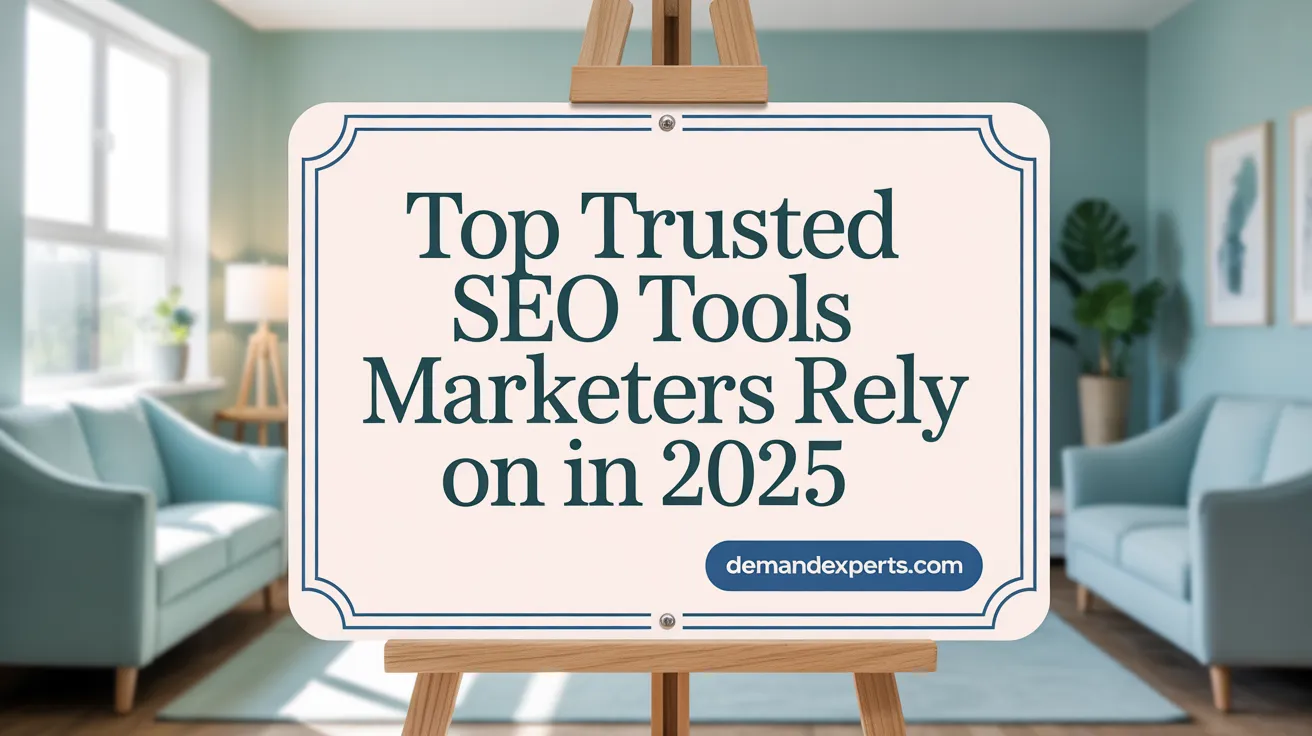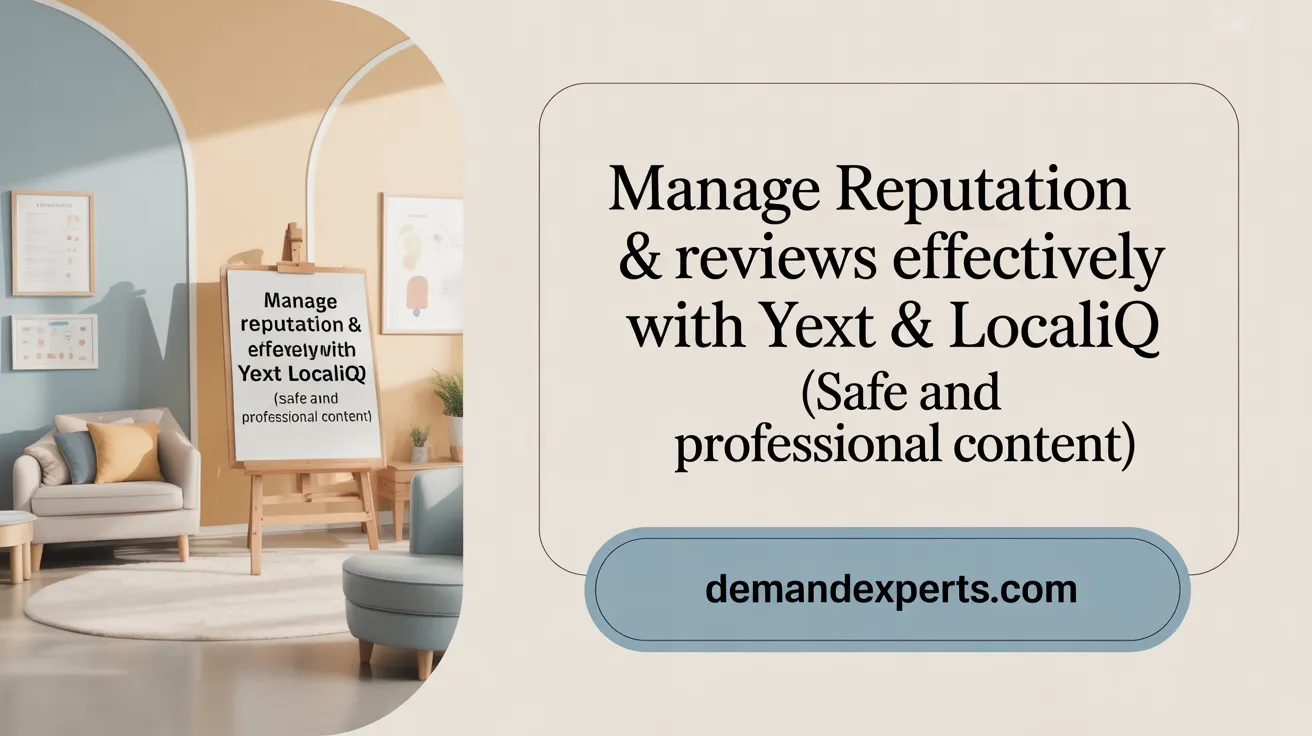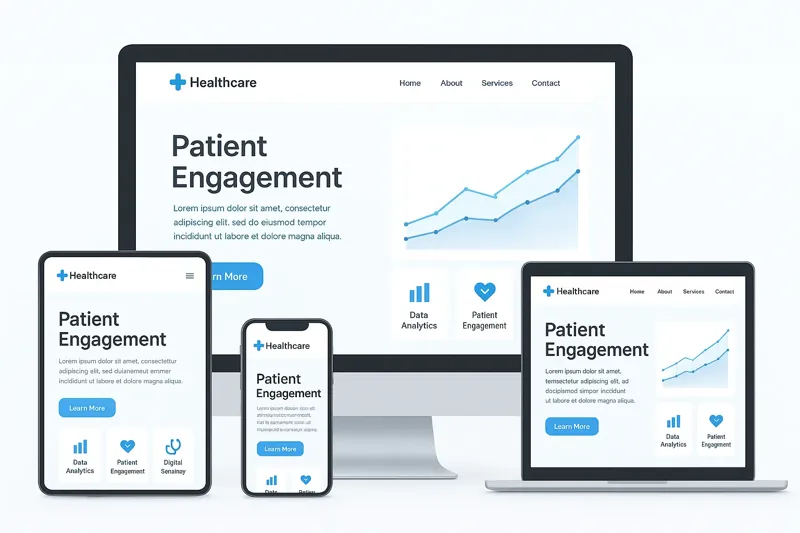Navigating the Evolving Landscape of SEO Tools
As digital marketing evolves rapidly in 2025, marketers face an increasingly complex landscape in optimizing their online presence. SEO tools have become indispensable in crafting effective strategies, providing deep insights into keyword trends, competitor performance, on-page optimization, and technical health of websites. This article offers a comprehensive exploration of the top SEO tools marketers rely on this year, highlighting their features, usability, emerging AI integrations, and strategic applications tailored to diverse marketing needs. Whether you are a beginner or an advanced SEO professional, understanding these platforms will empower you to stay ahead in the competitive search environment.
Best SEO Tools for Beginners: Building a Solid Foundation

What are the best SEO tools for beginners?
Getting started with SEO can feel overwhelming, but there are many user-friendly tools designed for newcomers. Free options like Google Search Console are essential. It offers valuable insights into your website’s search performance, indexing status, and technical health, all at no cost. Pairing it with Chrome extensions like Detailed helps you quickly analyze individual pages for on-page SEO issues.
Budget-friendly platforms that pack a punch include Mangools and SE Ranking. Mangools starts at $49 per month and provides a simple, intuitive interface for keyword research, rank tracking, backlinks analysis, and site audits. SE Ranking, at around $65 per month, offers comprehensive features including competitor analysis, keyword research, and technical audits, making it suitable for those just learning the ropes.
For WordPress users, two popular plugins—Yoast SEO and Rank Math—are excellent for ongoing on-site optimization. They provide real-time content analysis, XML sitemap generation, and on-page SEO suggestions, helping beginners optimize their content easily.
Content planning tools like AnswerThePublic and Exploding Topics are perfect for discovering what questions your audience has and identifying emerging search trends. These insights help craft content that resonates and ranks.
Technical SEO basics are simplified by tools like Screaming Frog, which crawls your entire website to find issues like broken links, duplicate content, or missing metadata. Its free version handles up to 500 URLs, making it accessible for small sites.
By combining these accessible, beginner-friendly tools, new users can develop a strong SEO foundation. They cover fundamental areas such as content optimization, technical health, and content ideas, all without the need for extensive technical knowledge.
| Tool Type | Recommended Tools | Starting Price | Main Benefits | Suitable For |
|---|---|---|---|---|
| Free SEO | Google Search Console, Detailed Chrome Extension | Free | Search performance insights, on-page analysis | Website owners new to SEO |
| Budget Platforms | Mangools, SE Ranking | $49 - $65/month | Keyword research, tracking, site audits | Beginners seeking comprehensive features |
| WordPress Plugins | Yoast SEO, Rank Math | Free (with premium options) | On-page optimization, technical SEO | WordPress site owners |
| Content Research | AnswerThePublic, Exploding Topics | $6.42 - $11/month | Content ideas, trend spotting | Content creators and bloggers |
| Technical SEO | Screaming Frog SEO Spider | Free (up to 500 URLs), Paid $259/year | Site auditing, issue fixing | Technical SEO beginners |
Starting with these basic yet powerful tools allows newcomers to build confidence and gradually tackle more advanced SEO strategies. Remember, consistency and continual learning are crucial as you expand your digital presence.
Features and Benefits of Popular SEO Software Solutions

What features and benefits do popular SEO software tools offer, including free options?
Leading SEO software solutions provide a broad spectrum of features designed to improve a website’s visibility and search engine ranking. Free tools like Google Search Console and Detailed Chrome extensions are accessible to website owners and developers, offering essential functionalities such as on-page SEO analysis, website health monitoring, and detection of issues like duplicate content or broken links.
Paid tools bring more extensive capabilities. Semrush, Ahrefs, Moz Pro, and SEMrush stand out for their robust offerings, which include comprehensive keyword research, competitor analysis, backlink audits, content optimization, and in-depth technical site audits. These platforms support strategic planning by revealing opportunities, benchmarking against competitors, and tracking search rankings over time.
Many modern tools now incorporate artificial intelligence to automate complex tasks and generate insightful recommendations. ChatGPT, for example, assists in content creation and SEO strategy development, while AI-powered tools like SEO.ai offer automated content optimization and data analysis.
Overall, whether a user opts for free or paid solutions, these tools empower digital marketers by providing the data and guidance necessary to refine SEO campaigns, troubleshoot issues efficiently, and enhance overall website performance.
How does AI integration elevate SEO tools?
The integration of AI significantly enhances the functionality of SEO software. AI algorithms can analyze large amounts of data quickly, providing insights on keyword opportunities, content gaps, and user intent.
Tools like ChatGPT and SEO.ai assist in content creation, helping marketers generate optimized blog posts, meta descriptions, and topic outlines with minimal effort. AI also supports technical audits by identifying issues such as slow page speeds, broken links, and duplicate content more accurately.
This technological advancement not only saves time but also improves accuracy, enabling more effective decision-making and personalized content strategies.
What about content optimization and keyword research?
Content is the core of SEO, and many tools focus on optimizing it effectively. Platforms like Surfer SEO, MarketMuse, and Clearscope analyze page content, competitive top results, and search trends to suggest improvements.
Keyword research tools, such as KWFinder, Ubersuggest, and RankIQ, help identify high-traffic, low-competition keywords. They also provide insights on search volume, difficulty scores, and related terms. These features help marketers tailor their content to meet the actual queries of users, boosting chances of ranking higher.
Combining content optimization with keyword research allows for strategic creation and refinement of webpages, ensuring relevance and searchability.
How do technical audits and backlink analysis support SEO efforts?
Technical SEO is crucial for ensuring search engines can crawl and index a website effectively. Tools like Screaming Frog, Sitebulb, and DeepCrawl perform comprehensive audits to detect issues like broken links, duplicate content, missing meta tags, and server errors.
Backlink analysis tools such as Ahrefs, Majestic, and SEMrush examine backlink profiles to identify authoritative links, disavow harmful ones, and develop link-building strategies.
These technical and backlink audits provide actionable insights, helping site owners fix issues that might hinder rankings and build a stronger, more trustworthy link profile. Combined, these features form the backbone of a well-rounded SEO strategy.
| Aspect | Popular Tools | Core Capabilities | Suitable Users |
|---|---|---|---|
| Free Options | Google Search Console, Detailed Chrome extension | Basic on-page analysis, site performance, structured data validation | Small businesses, beginners, website owners |
| Paid Solutions | Semrush, Ahrefs, Moz Pro, SEMrush | Keyword research, technical audits, backlinks, content optimization | Agencies, experienced SEOs, large enterprises |
| AI Integration | ChatGPT, SEO.ai | Content creation, automation, advanced analytics | Content teams, advanced marketers |
| Content & Keywords | Surfer SEO, MarketMuse, KWFinder | Content scoring, keyword discovery, search trend analysis | Content marketers, SEO strategists |
| Technical & Backlink | Screaming Frog, Majestic, Sitebulb | Website crawling, issue detection, backlink profiles | Technical SEOs, developers, content marketers |
This toolkit diversity ensures that every aspect of SEO, from technical health to content strategy, is covered effectively, helping brands enhance their digital presence in 2025 and beyond.
A Comparative Look at Leading SEO Platforms: Capabilities and Usability

How do leading SEO platforms compare in terms of capabilities and usability?
Top SEO platforms offer a wide array of tools designed to improve search engine rankings, analyze competitors, and optimize website content. Semrush and Ahrefs are considered comprehensive marketing suites, providing extensive keyword databases, backlink analysis, technical site audits, and content optimization features. These platforms are favored by professionals due to their depth and breadth, but some users note challenges with data accuracy or complexity.
Moz Pro and BrightEdge serve different segments within the market. Moz Pro is known for being user-friendly and accessible, making it an excellent choice for local businesses, small agencies, and beginners. Its intuitive interface simplifies tasks like keyword research and site auditing. BrightEdge, on the other hand, emphasizes AI-driven content performance and enterprise-level analytics, offering advanced automation and customization options suitable for large organizations.
Other platforms like seoClarity and Conductor focus on scalability and offer highly customizable dashboards, automation features, and deep competitive insights, making them ideal for corporations with extensive SEO needs. These tools often require more technical expertise but significantly streamline large-scale SEO efforts.
Ease of use and user interface differences
Platforms vary from very user-friendly to more technical interfaces. Moz Pro boasts a clean, simple dashboard that's easy to navigate, perfect for those new to SEO. Semrush and Ahrefs feature more complex interfaces with multiple modules, which can be overwhelming initially but offer powerful insights once mastered.
seoClarity and Conductor are geared toward experienced users, with customizable dashboards and advanced reporting, even allowing automation of routine tasks. Their interfaces may require training but provide invaluable efficiency for large teams.
Suitability for various business sizes and skill levels
Small to medium-sized businesses and solo practitioners benefit from platforms like Moz Pro, Ahrefs, and Ubersuggest, which balance usability with robust functionalities. These tools support users with limited technical skills through straightforward setups and guided workflows.
Large enterprises often require the depth offered by platforms like BrightEdge, seoClarity, and Conductor. These services excel in handling complex, large-scale projects, integrating with CRM systems, and automating comprehensive SEO strategies.
Enterprise versus small business SEO tool focus
Enterprise tools focus on scalability and automation, managing vast amounts of data and offering advanced analytics. They support multi-user environments and customizable workflows, essential for global brands.
Conversely, small business tools prioritize simplicity, quick setup, and affordability. They often feature guided processes, basic reporting, and integrations with essential content management systems.
Integration and customization options
Most top platforms now offer integrations with other marketing tools such as Google Analytics, Search Console, CRM systems, and content management platforms. Semrush, Ahrefs, and seoClarity, for example, allow users to customize dashboards and reports, tailoring insights to specific business goals.
Such flexibility enhances usability, enabling businesses to create a seamless SEO workflow, align data across platforms, and automate routine reporting, ultimately saving time and improving decision-making.
Most Trusted SEO Tools by Marketers in 2025

Which SEO tools are most relied upon by marketers in 2025?
In 2025, marketers depend on a well-rounded array of SEO tools to optimize their websites and improve search engine rankings. Google Search Console and Google Analytics remain fundamental, offering free, reliable insights directly from Google about website health, traffic sources, and user behavior.
For in-depth SEO analysis, platforms like Semrush, Ahrefs, and Moz Pro dominate the professional landscape. These tools excel in keyword research, backlink tracking, site auditing, and competitor analysis, making them favorites for agencies and experienced marketers.
Small businesses and SEO novices often opt for more accessible options such as Ubersuggest and Ranktracker. These tools provide essential features at a lower cost and with user-friendly interfaces, supporting effective SEO without overwhelming complexity.
Niche tools are gaining popularity for specific strategies. Surfer SEO is highly regarded for on-page content optimization, while BrightLocal is preferred for local SEO efforts. Additionally, Answer the Public offers valuable content idea generation, leveraging popular search questions.
The diversity of tools used reflects the various demands of modern SEO. From fundamental data sources to specialized content and local SEO platforms, marketers tailor their toolkit to fit specific goals while relying on trusted, proven solutions.
AI Integration: Transforming SEO Tools and Strategies

What are the current trends and innovations in SEO tools, particularly with AI integration?
The SEO landscape in 2025 is experiencing a significant shift thanks to advanced artificial intelligence (AI) technologies. Leading systems like GPT-4, Google Bard, and Google's MUM (Multitask Unified Model) are at the forefront of this evolution, reshaping how search engines surface results and how marketers optimize content.
One of the most prominent trends is AI-powered content generation and optimization. Platforms such as Jasper, Frase, and Surfer SEO leverage AI to automate content creation, suggest improvements, and ensure relevance. These tools analyze top-ranking pages and search intent, helping marketers craft content that aligns with what users are truly seeking. This automation frees up valuable time while enhancing content quality and personalization.
AI’s role extends deeply into search result algorithms themselves. Google's Search Generative Experience (SGE) and similar features utilize NLP models like BARD and MUM to interpret complex queries more accurately. They enable more conversational and semantically rich search results, taking into account context, intent, and even user behavior. This move toward understanding natural language means SEO strategies now focus heavily on intent and comprehensive content rather than just keywords.
Predictive analytics and automation have become essential tools for staying ahead. SEO platforms now incorporate AI to forecast algorithm updates, identify potential risks, and suggest proactive adjustments. Structured data and schema markup are optimized automatically to enhance AI comprehension, leading to better visibility in AI-driven search features like featured snippets and rich results.
Another growing aspect is the expansion of visual and voice search. Tools like Google Lens and Bing Visual Search, powered by AI, enable users to search using images or voice commands. This demands that SEO strategies adapt to optimize multimedia content and conversational keywords, emphasizing a more diverse and intuitive search experience.
Despite these advances, maintaining E-E-A-T (Experience, Expertise, Authority, Trust) standards remains critical. AI assists in content curation and fact-checking, but human oversight ensures content remains authentic, reliable, and authoritative. Combining AI innovation with human expertise enables the creation of trustworthy, high-quality content that aligns with Search Quality Guidelines.
In summary, AI integration in SEO tools and strategies in 2025 facilitates smarter content development, improved search result understanding, and proactive optimization. This evolution leads to a more personalized, dynamic, and data-driven SEO environment, empowering marketers to deliver better user experiences and achieve higher visibility.
Strategic Use of SEO Tools in Digital Marketing Campaigns

How can SEO tools be strategically used to enhance various digital marketing needs?
Implementing SEO tools effectively can significantly elevate your digital marketing efforts. These tools provide vital insights into different aspects of search engine optimization, enabling targeted and data-driven campaigns.
Keyword research tools like Semrush, Ahrefs, and Ubersuggest help identify high-impact keywords relevant to your niche. By analyzing search volumes, competition, and related terms, marketers can craft content and campaigns that attract the right audience.
Content optimization workflows benefit from platforms such as Surfer SEO, Yoast SEO, and Clearscope. These tools analyze top-ranking pages, suggest keyword placements, and evaluate content relevance, ensuring your content meets search intent and ranks higher.
Technical SEO is crucial for a seamless user experience and better crawlability. Tools like Screaming Frog, Google Search Console, and Sitebulb diagnose issues like broken links, duplicate content, and site speed problems. Addressing these technicalities enhances user engagement and search visibility.
Competitor analysis is essential to understand market positioning. Platforms such as SpyFu, SEMrush, and Similarweb enable marketers to track competitors' rankings, backlink profiles, and paid strategies, allowing for smarter positioning and differentiation.
To maintain and improve rankings, continuous tracking and strategy adjustment are necessary. Google Analytics, Google Search Console, and Aiorama provide detailed performance data like traffic sources, user behavior, and keyword rankings. Regular monitoring enables timely optimization, keeping campaigns aligned with changing algorithms and market trends.
Integrating these tools into a cohesive strategy ensures sustained organic growth, increased brand awareness, and more effective conversion efforts across all digital channels. Proper strategic use turns data into actionable insights, ultimately boosting your marketing ROI.
Selecting the Right SEO Tools: Best Practices for Marketers

What best practices should marketers follow when selecting SEO tools for their digital marketing strategies?
Choosing the right SEO tools is a crucial step in crafting an effective digital marketing strategy. Marketers should start by clearly defining their specific goals—whether it's improving rankings, increasing organic traffic, or building backlinks—and aligning their tool selection accordingly.
Assessing their budget is equally important. There are many tools available at various price points, from free platforms like Google Search Console and Google Analytics to advanced paid solutions such as Semrush or Ahrefs. Understanding the features they need helps prevent overspending on unnecessary features or opting for insufficient tools.
Technical proficiency also influences the choice. Beginners might prefer user-friendly platforms like Moz Pro or Ubersuggest, while experienced SEO professionals could opt for more comprehensive options like Screaming Frog or advanced analytics tools.
Evaluating essential SEO features is vital. Look for tools that support keyword research, on-page optimization, backlink analysis, site auditing, and competitor insights. These core functionalities enable a well-rounded SEO approach.
Integration capabilities matter too. Select tools that seamlessly connect with your existing platforms, like CMSs (WordPress, Shopify) or marketing automation systems, to streamline workflows and data sharing.
Using a blend of free and paid tools often offers the best results. For instance, pairing free monitoring tools with powerful paid analytics can provide both broad visibility and in-depth analysis.
Finally, search for tools that keep pace with SEO trends and updates. The SEO landscape evolves rapidly with search engine algorithm changes and emerging technologies like AI. Regularly reviewing and updating your toolkit ensures your strategies stay effective.
In summary, marketers should approach SEO tool selection systematically, balancing their goals, budget, technical needs, and the latest industry practices. This strategic process maximizes the impact of their SEO efforts and helps maintain a competitive edge in 2025 and beyond.
Semrush: An All-In-One Powerhouse for Agencies and Enterprises

What are the capabilities of Semrush as an all-inclusive digital marketing tool?
Semrush stands out as a versatile platform packed with features that cater to the needs of marketing agencies, large enterprises, and digital professionals. It combines high-level SEO functionalities with PPC, content marketing, and social media management tools, making it a comprehensive solution for boosting online visibility.
How does Semrush facilitate competitive analysis and keyword research?
One of Semrush's most impressive aspects is its advanced competitive analysis suite. Users can examine their competitors' strategies, uncover profitable keywords, and identify gaps in their own campaigns. Its keyword research tools allow marketers to find high-traffic, low-competition keywords, and monitor search trends over time. The platform also provides detailed metrics like search volume, keyword difficulty, and SERP features, enabling data-driven decision-making.
What content marketing tools does Semrush offer?
Content creation and optimization are streamlined with Semrush’s content marketing tools. Features like Content Template, SEO Writing Assistant, and Topic Research help in planning, drafting, and optimizing content to rank higher. These tools analyze top-ranking pages, suggest relevant keywords, and assess content quality, ensuring that teams produce impactful, SEO-friendly content.
How well does Semrush integrate with advertising and social media?
Semrush integrates seamlessly with advertising platforms, offering insights into paid search campaigns and display advertising. Its PPC Toolkit enables users to study competitors' ad strategies and optimize their own. For social media, Semrush provides scheduling, tracking, and reporting tools across major platforms like Facebook, Twitter, and LinkedIn, allowing agencies to coordinate campaigns efficiently.
What about pricing, accessibility, and target users?
Starting at $139.95 per month, Semrush offers flexible plans, with discounts for annual billing. Its user-friendly interface and extensive tutorials make it accessible to both beginners and seasoned professionals. Small businesses, marketing teams, and large agencies benefit from its comprehensive toolkit, which supports everything from site audits and keyword tracking to content development and ad management.
In summary, Semrush's all-encompassing features make it an essential asset for any organization aiming to dominate digital marketing, combining powerful data analysis, content tools, and seamless integrations.
| Feature Category | Main Tools and Capabilities | Suitable For | Starting Price (Annual Billing) |
|---|---|---|---|
| SEO and PPC | Keyword research, site audits, competitor analysis | Marketers, Agencies, Enterprises | $139.95/month |
| Content Marketing | Content templates, SEO writing, topic research | Content creators, SEO teams | Included in standard plan |
| Advertising & Social Media | Campaign analysis, social media scheduling, tracking | Advertisers, Social Managers | Included in standard plans |
| Technical and Performance | Site audit, backlink tracking, rank monitoring | Technical SEO specialists | Varies |
Ahrefs: Versatile SEO and Backlink Analysis Platform

Backlink research and site audits
Ahrefs is renowned for its extensive backlink analysis capabilities. Its vast backlink database allows users to explore link profiles, identify high-quality backlinks, and discover opportunities for link building. The Site Explorer tool provides detailed insights into competitors' backlinks, helping marketers develop effective strategies. Additionally, Ahrefs offers comprehensive site audit features that scan websites for technical SEO issues, such as broken links, duplicate content, missing meta tags, and other on-page problems. The audit reports help identify areas needing improvement, ensuring websites stay optimized for search engines.
Keyword and content insights
Apart from backlink analysis, Ahrefs excels in keyword research and content exploration. Its Keyword Explorer tool generates keyword ideas, provides search volume data, keyword difficulty scores, and click-through rates. This helps users target the right keywords for their content. The Content Explorer feature enables finding popular content on any topic, along with organic traffic metrics, to inform content marketing strategies. These tools combined give a comprehensive view of what content performs well and how to optimize for higher search rankings.
User experience and interface strengths
Ahrefs is designed with user-friendliness in mind. Its intuitive interface simplifies complex SEO data, making it accessible for beginners and experienced professionals alike. The dashboard provides easy navigation through various tools and real-time updates on rankings and backlinks. Visual data presentations, like graphs and charts, enhance understanding and decision-making, elevating user experience significantly.
Suitability for professionals and agencies
Ahrefs is ideal for SEO professionals, digital marketing agencies, and content marketers. Its detailed backlink analysis, site audits, and keyword research tools support in-depth competitive analysis and campaign planning. Agencies benefit from its ability to manage multiple client accounts, generate reports, and track performance over time. The platform's robustness makes it a preferred choice for those who require precise, actionable insights to improve organic visibility.
Subscription options
Ahrefs offers various subscription plans to cater to different needs and budgets. Its Lite plan starts at $83 per month if paid annually, suitable for small businesses and freelancers. More advanced options like Standard and Advanced plans provide additional features such as more tracked keywords, bigger project limits, and access to deeper data. The annual billing option provides cost savings, and occasional discounts are often available during promotions. Subscribers enjoy regular updates, dedicated support, and the ability to scale their SEO efforts as their business grows.
| Feature | Pricing (Annual) | Suitable For | Main Benefits |
|---|---|---|---|
| Lite | $83/month | Small businesses, freelancers | Core backlink, keyword, and site audit tools |
| Standard | $149/month | Growing agencies, mid-sized businesses | Increased project limits, more keywords and historical data |
| Advanced | $249/month | Large agencies, enterprise teams | Full access to all features, API integrations |
Overall, Ahrefs stands out as a comprehensive platform that equips SEO professionals and agencies with the necessary tools to analyze, optimize, and outperform competitors in search engine rankings.
Moz Pro: Beginner-Friendly and Educational SEO Suite

What are the main features of Moz Pro, especially regarding keyword exploration and domain authority?
Moz Pro is celebrated for its user-friendly interface and comprehensive tools designed for newcomers to SEO. Its Keyword Explorer helps users discover relevant keywords, analyze search volume, and assess keyword difficulty, making it easier for beginners to target the right terms. Additionally, Moz’s Domain Authority metric offers an estimate of how well a site can rank on Google based on its backlink profile, providing a clear indicator of a site’s potential to compete in search rankings.
How does Moz Pro assist with site crawling and on-page optimization?
Moz Pro includes a Site Crawl feature that scans websites for common SEO issues such as broken links, duplicate content, or missing meta tags. These insights enable users to fix problems that might hinder search performance. The platform also offers on-page optimization recommendations, guiding users on how to improve title tags, meta descriptions, headers, and overall content structure, all tailored to enhance visibility.
Is Moz Pro suitable for small to mid-sized businesses?
Yes, Moz Pro is particularly aimed at small to mid-sized businesses and beginners in SEO. Its ease of use, affordability, and educational resources make it an attractive option for organizations without extensive SEO experience. The platform is designed to help these businesses improve their search visibility without requiring advanced technical knowledge.
What community support and educational resources does Moz Pro offer?
Moz Pro is backed by an active community forum and a dedicated blog filled with SEO insights, tutorials, and best practices. Moz also offers webinars and guides to help users get the most out of their tools. These resources are invaluable for beginners who want to learn SEO fundamentals and stay updated with industry trends.
How is Moz Pro priced, and what are the options?
Pricing for Moz Pro begins at $79 per month with annual billing. This entry-level plan includes access to basic keyword research, site audits, and ranking data. Higher-tier plans provide additional features like more extensive keyword tracking and competitive analysis. Moz also offers a free 30-day trial, allowing users to explore its functionalities before committing.
| Feature | Description | Suitable For |
|---|---|---|
| Keyword Explorer | Keyword research and difficulty analysis | Beginners, Small Businesses |
| Site Crawl | Detects technical SEO issues | Website Owners |
| Domain Authority | Assess backlink strength and ranking potential | SEO Beginners, Agencies |
| Educational Resources | Blogs, guides, webinars | Learners and Small Teams |
| Pricing | Starting at $79/month | Small to Mid-Sized Businesses |
By focusing on accessibility and education, Moz Pro remains a top choice for those new to SEO looking to build a strong online presence.
Surfer SEO: AI-Driven Content Optimization for Creators and Marketers

What tools does Surfer SEO offer for content audits and editing?
Surfer SEO provides comprehensive content audit and editing features designed to help creators improve their content effectively. Its content editor allows users to optimize webpage structure, keyword usage, and overall readability. The platform analyzes top-ranking pages and provides actionable suggestions for improvement, ensuring that content aligns with the latest SEO best practices.
How do topical maps and keyword suggestions enhance content strategy?
One of Surfer SEO's standout features is its topical map functionality. It helps content creators identify relevant topics and clusters around a central keyword, fostering comprehensive coverage. Alongside, its keyword suggestion tools analyze search intent and competition, enabling users to target high-potential keywords strategically. This approach boosts the chances of ranking higher by covering related topics thoroughly.
What does real-time content quality feedback involve?
Surfer SEO’s real-time content analysis offers instant feedback during content creation. It scores the content based on how well it matches SERP expectations and provides specific guidance on keyword density, structure, and length. This immediate insight allows writers to make adjustments on the fly, reducing the need for multiple revisions and speeding up the publishing process.
Can Surfer SEO integrate with WordPress?
Yes, Surfer SEO seamlessly integrates with WordPress through its plugin. This integration enables users to optimize their pages directly within the WordPress environment, using Surfer’s tools without switching platforms. Such ease of use enhances workflow efficiency and helps maintain consistent content quality across websites.
What is the pricing and who uses Surfer SEO?
Starting at $69 per month if billed annually, Surfer SEO is tailored for SEO professionals, content teams, and marketers seeking to create optimized content efficiently. Its user base includes individual content creators, digital marketing agencies, and e-commerce entrepreneurs who want data-driven content strategies. The platform's accessible pricing and powerful features make it popular among those looking to improve their search rankings with smarter content practices.
Screaming Frog SEO Spider: Industry-Leading Technical SEO Crawler

What are the website crawling capabilities of Screaming Frog SEO Spider?
Screaming Frog SEO Spider is renowned for its robust crawling abilities, capable of scanning up to 500 URLs in its free version and unlimited URLs with a paid license. It systematically analyzes a website, extracting critical data such as page titles, meta descriptions, headers, status codes, and more. Its crawling efficiency allows SEO professionals to perform comprehensive audits of entire websites, ensuring no page is overlooked.
How does it identify technical SEO issues?
This tool excels at pinpointing a variety of technical problems that could hinder website performance and search engine visibility. It detects broken links, server errors, duplicate content, missing or duplicate meta tags, redirect chains, and issues with canonicalization. Additionally, it provides insights into page response times and crawl budget optimization, facilitating targeted fixes for common SEO issues.
Is Screaming Frog SEO Spider user-friendly for SEO professionals?
Designed with experienced SEO specialists and developers in mind, Screaming Frog offers a detailed, customizable interface that supports advanced filtering and data analysis. Its user-friendly features include visualizations of crawl data, export options for further analysis, and integration with other tools. While it is powerful, some familiarity with SEO and technical website structures helps users leverage its full potential.
What are the licensing options available?
Screaming Frog offers both a free version and a paid premium license. The free version allows crawling of up to 500 URLs, suitable for small sites or preliminary audits. The paid license, costing $259 per year, unlocks unlimited crawling, advanced configuration options, and scheduling features. This investment is appealing for agencies and enterprises requiring detailed, ongoing site audits.
What role does Screaming Frog play in detailed site audits?
Screaming Frog is a crucial element in technical SEO audits. Its thorough crawl data helps identify and prioritize fixes for critical issues, enhance site architecture, and optimize for search engines. Its reports assist SEO professionals in developing comprehensive strategies to improve crawlability, indexation, and overall site health, making it a cornerstone tool for technical audits.
| Feature | Free Version | Paid Version | Description |
|---|---|---|---|
| URL Crawl Limit | Up to 500 URLs | Unlimited | Allows comprehensive site scanning |
| Cost | Free | $259/year | Licensing options for users |
| Key Capabilities | Basic crawl data | Advanced filtering, scheduling | Supports detailed site analysis |
This combination of features makes Screaming Frog SEO Spider a top choice for SEO experts seeking precision, depth, and efficiency in technical site auditing and optimization.
Rankability and Keyword.com: AI-Powered Rank Monitoring and Insights

Assessment of content ranking potential
Rankability is a specialized SEO tool designed to evaluate how well web content is positioned to rank on Google. It provides comprehensive insights into how search engines perceive a website’s relevance and authority, helping content creators and marketers identify strengths and weaknesses in their SEO strategies.
AI-driven search insights
Rankability leverages powerful AI technology to analyze search trends and predict search engine behavior. This AI-driven approach offers valuable insights into search intent and emerging patterns, enabling users to optimize content effectively and stay ahead of evolving SEO landscapes.
Brand visibility tracking on AI search platforms
A standout feature of Rankability is its ability to monitor brand mentions and online presence across various AI search platforms. Users can track how their brand appears in AI-generated responses, discover gaps, and refine their messaging to improve recognition and reputation.
Target audiences
Rankability is suitable for a broad range of users, including bloggers, niche site owners, small businesses, marketing agencies, and startups. Its AI-powered insights empower these groups to improve their search performance, manage online reputation, and make data-driven decisions for growth.
Pricing and accessibility
The platform offers flexible pricing plans to accommodate different user needs, making advanced SEO insights accessible even for small-scale operators and individual content creators. While specific pricing details are often customized, Rankability generally aims to provide affordable access with scalable options for growing businesses.
| Tool | Main Features | Ideal Users | Starting Price |
|---|---|---|---|
| Rankability | AI search insights, brand monitoring, SEO potential assessment | Bloggers, small businesses, agencies | Varies, customizable |
| Keywords.com | AI Rank Tracker, brand mentions, visibility metrics | Freelancers, in-house teams, agencies | Varies, usually affordable |
Both Rankability and Keywords.com have positioned themselves as essential tools for 2025, harnessing AI to transform traditional SEO practices into more proactive, data-driven strategies. These tools enable users to stay ahead in the competitive digital landscape by constantly monitoring and optimizing their online presence.
Local SEO Tools: BrightLocal, Localo, and GeoRanker Driving Local Market Success

How do BrightLocal, Localo, and GeoRanker help with local rank tracking and citation management?
BrightLocal offers comprehensive local SEO services, including rank tracking for multiple locations, citation management, and audit tools. Its platform enables businesses to monitor their local search rankings, identify citation inconsistencies, and optimize their listings.
Localo is tailored for small businesses and local SEO agencies. It provides tools to track local rankings, manage customer reviews, generate schema markup, and optimize Google My Business profiles. This helps ensure consistent visibility in local searches.
GeoRanker specializes in local rank tracking with a focus on multi-location SEO. It also offers review monitoring and citation building features, helping businesses improve their local search presence across various regions.
What about review and reputation monitoring?
BrightLocal’s reputation management tools allow businesses to monitor and respond to reviews across platforms. It consolidates reviews into a single dashboard, helping maintain positive local reputations.
Localo includes review management features that help SMBs track reviews on Google and other platforms, ensuring timely responses and reputation improvements.
GeoRanker supports review monitoring, alerting businesses when new reviews are posted, which aids in maintaining active engagement with customers.
How do these tools assist with schema and Google Business Profile optimization?
BrightLocal provides schema markup generation to enhance local listings and Improve Google Business Profile visibility. It also offers step-by-step guides for optimizing GMB profiles.
Localo automates schema markup creation and provides audit tools to ensure local business information is accurate and complete, boosting search relevance.
GeoRanker offers tools to optimize Google My Business listings directly within its platform, ensuring accuracy and consistency that contribute to higher rankings.
Are these tools suitable for SMBs and local agencies?
Absolutely. BrightLocal and Localo are ideal for small and medium-sized businesses looking to improve local search rankings efficiently. They also serve local SEO agencies managing multiple clients.
GeoRanker’s multi-location tracking and review alerts make it a good choice for agencies handling a variety of local clients and for SMBs aiming to improve their regional presence.
What are the subscription pricing details?
BrightLocal’s plans start at approximately $39/month for basic local SEO features, with premium packages offering more extensive tools.
Localo offers plans around $49/month, including review management, schema generation, and GMB optimization.
GeoRanker’s pricing begins at $24/month for basic rank tracking and review monitoring, scaling up based on the number of locations and features.
Using any of these tools can significantly enhance local visibility, reputation, and search engine rankings, especially when tailored to the specific needs of SMBs or local agencies.
[More info on the top local SEO tools in 2025 can be found by searching "top local SEO tools 2025".]
Content Ideation Tools: AnswerThePublic and Exploding Topics for Trendspotting

How do AnswerThePublic and Exploding Topics help in content topic discovery?
AnswerThePublic and Exploding Topics are powerful tools for identifying what people are searching for and emerging trends. AnswerThePublic visualizes the most common questions and search curiosities around a specific keyword or topic, offering insights into what your target audience wants to know. This helps content creators craft useful, relevant content that directly addresses user questions.
On the other hand, Exploding Topics tracks rising search volume and social media conversations to catch emerging trends early. It spots topics gaining popularity before they become mainstream, giving marketers a competitive edge in creating timely and trending content.
How do these tools help in visualizing popular questions and search curiosities?
AnswerThePublic generates detailed visualizations of popular questions, prepositions, and comparisons related to a keyword. These visual aids make it easier to understand the types of content that will resonate most with your audience.
Exploding Topics doesn’t focus on questions specifically but provides trend charts showcasing rising search interests. This allows content teams to prioritize topics that are gaining momentum, ensuring their content remains relevant.
Why are emerging trends and rising search volumes important?
Staying ahead of emerging trends is crucial for capturing early traffic and establishing authority. By identifying topics with rising search volume, content creators can develop content that aligns with what users are increasingly interested in. This not only boosts visibility but also improves chances of ranking higher in search results.
What are the budget considerations for using AnswerThePublic and Exploding Topics?
AnswerThePublic offers a free version with limited searches per day, with paid plans starting at around $11/month. Exploding Topics provides tiers for early access and premium features, typically costing about $39/month. Investing in these tools can be cost-effective for small teams aiming to generate high-impact content ideas.
How do these tools impact content strategy?
Using AnswerThePublic and Exploding Topics helps inform your content calendar. They guide keyword selection, topic prioritization, and content formats based on actual search interests and trends. This targeted approach ensures your content strategy remains data-driven, adaptive, and aligned with current search behaviors, leading to better engagement and higher rankings.
| Tool Name | Primary Use | Cost (Starting) | Ideal For | Benefit |
|---|---|---|---|---|
| AnswerThePublic | Visualizing questions/search curiosities | $11/month (paid plans) | Content creators, marketers, SEO professionals | Discover what users ask, generate content ideas, understand audience intent |
| Exploding Topics | Tracking rising search trends and social discussions | $39/month (premium) | Content marketers, trend forecasters | Catch early trends, develop timely content, stay ahead of competitors |
Leveraging these tools effectively can dramatically enhance your content planning process. By focusing on trending topics and user questions, you improve your chances of appearing in relevant searches, engaging your audience, and maintaining a competitive edge in the crowded digital landscape.
Budget-Friendly SEO Toolkits: Mangools and Ubersuggest Delivering Value

How do Mangools and Ubersuggest compare in keyword research and rank tracking?
Mangools offers a straightforward and beginner-friendly platform featuring tools like KWFinder for discovering low-competition keywords, and SERPWatcher for tracking keyword positions over time. Its interface is simple, making it easy for new users to get started quickly.
Ubersuggest, created by Neil Patel, provides comprehensive keyword research capabilities with a focus on search volume, competition, and content ideas. It includes rank tracking, allowing users to monitor their keyword rankings and see personal progress.
Both tools excel in helping users identify the right keywords to target, but Mangools is slightly more focused on detailed keyword analysis within its suite, while Ubersuggest balances keyword research with broader content suggestions.
What about backlink analysis?
Mangools features LinkMiner, a tool dedicated to backlink analysis. It allows users to evaluate the backlinks of any website, find link prospects, and monitor backlink growth.
Ubersuggest also offers backlink data and analysis features. Users can see backlink profiles, evaluate link quality, and track new or lost backlinks that may impact SEO.
While both tools provide backlink insights, Mangools' interface emphasizes link prospecting and quality assessment, making it slightly more refined for backlink management.
Are these tools suitable for small businesses and freelancers?
Yes, both Mangools and Ubersuggest are ideal for small businesses and freelancers due to their affordability and ease of use.
Mangools’ intuitive interface and focused features make it accessible for users without extensive SEO experience.
Ubersuggest offers a clear and straightforward user experience, along with useful educational resources, making it suitable for those new to SEO.
How do their user interfaces and learning curves compare?
Mangools is praised for its clean, organized layout, which simplifies navigation and quick learning. Its dashboard is easy to understand, even for beginners.
Ubersuggest also has a user-friendly dashboard, with guided content and a less steep learning curve. It provides helpful tutorials and tips within the platform.
Both tools support quick onboarding and minimal technical knowledge required, though Mangools may be slightly more intuitive for absolute beginners.
What is the pricing comparison?
Pricing for Mangools starts at approximately $49 per month if paid annually, covering all its tools in the suite.
Ubersuggest offers a more affordable entry point at around £12 per month, with flexible plans depending on feature needs and usage.
Over a year, Mangools tends to be more expensive but offers more comprehensive features, whereas Ubersuggest provides great value for smaller budgets, especially with up to 3 projects included in its basic plan.
Final thoughts
Between Mangools and Ubersuggest, small businesses and freelancers can find cost-effective, easy-to-use SEO tools that support their growth. Mangools is well-suited for those needing in-depth keyword and backlink analysis with an intuitive interface. Ubersuggest, on the other hand, is ideal for budget-conscious users prioritizing simplicity and value.
More info search query: Mangools vs Ubersuggest 2025
| Feature | Mangools | Ubersuggest | Suitability | Price Range | User Experience |
|---|---|---|---|---|---|
| Keyword Research | Yes | Yes | Small Businesses, Freelancers | $49/year | User-friendly |
| Rank Tracking | Yes | Yes | Beginners, SMEs | $12/month | Easy onboarding |
| Backlink Analysis | Yes | Yes | SEO Professionals | Included | Clean, simple |
| Overall Suitability | Excellent for detailed analysis | Good for budget-conscious | Small business owners, freelancers | Affordable options | Intuitive UI for quick learning |
SEO Analytics and Free Tools: Google Search Console, GA4, and More

How do Google Search Console and GA4 help monitor website performance?
Google Search Console (GSC) and Google Analytics 4 (GA4) are essential free tools for understanding how your website performs in search results and visitor behavior. GSC provides detailed insights into your pages' presence on Google, including how often your sites appear in search, which queries bring visitors, and any crawling or indexing issues that affect visibility.
GA4 tracks user interactions on your website, offering data on page views, session durations, bounce rates, and conversions. It helps you analyze which content engages visitors and how they navigate your site.
Together, these tools offer a comprehensive view: GSC highlights search performance and technical health, while GA4 reveals real-world user engagement. This duo supports accurate monitoring of site health and effectiveness.
What user behavior insights do these tools provide?
GA4 excels at revealing user behavior trends, such as popular pages, flow paths, and conversion paths. It helps identify what content keeps visitors interested and where you might be losing them.
GSC complements this by showing click-through rates, impressions, and search queries that lead users to your site. This allows you to optimize your content and metadata based on actual search interests.
How do these tools integrate, and what are their limitations?
Both tools are directly linked through Google’s ecosystem, enabling seamless data sharing. For example, insights from GSC can inform your GA4 reports, and vice versa, offering a unified view of search and site engagement.
However, limitations exist. GA4 provides event-based data with privacy considerations, which can reduce data granularity. GSC offers technical insights but does not track user behavior on-site in depth. Both platforms require some setup and familiarity to interpret data effectively.
What role do these tools play in foundational SEO?
Google Search Console and GA4 form the backbone of SEO analysis. They help identify technical issues, track keyword and content performance, and understand visitor engagement. By regularly analyzing data from these tools, website owners can make informed decisions to improve search visibility, user experience, and content relevance.
Mastering these free resources ensures a solid base for any SEO strategy, enabling continuous improvement aligned with evolving search algorithms and user preferences.
The Rise of AI Assistants like ChatGPT in SEO Workflows

How ChatGPT Aids Content Creation and Keyword Research
ChatGPT has become an invaluable tool for SEO professionals and content creators, especially in 2025. It helps generate high-quality content outlines, meta descriptions, and keywords rapidly. By analyzing search intent and existing top-ranking pages, ChatGPT can suggest relevant topics that resonate with target audiences. This streamlines the content planning process and ensures that keyword strategies are aligned with current search trends.
Brainstorming and Troubleshooting with AI
Beyond content generation, ChatGPT assists in brainstorming new SEO strategies and troubleshooting technical issues. Marketers can use it to explore keyword ideas, troubleshoot site errors, or refine SEO tactics. Its ability to provide instant, citation-backed answers makes it handy for resolving complex SEO challenges efficiently.
Integration with SEO Platforms
ChatGPT is increasingly integrated with popular SEO tools like SEMrush, Ahrefs, and Surfer SEO, creating a robust ecosystem for digital marketers. These integrations enable seamless content optimization, competitive analysis, and performance monitoring, all powered by AI. This synergy reduces manual workload and enhances data-driven decision-making.
Free Access and Subscription Options
ChatGPT offers free access for basic features, catering to small businesses and individual professionals. For more advanced functionalities, premium plans starting at $20/month unlock capabilities like in-depth content analysis and API integrations. These options make AI assistance accessible to a wide range of users, from freelancers to large teams.
Use Cases Across Marketing Teams
Marketing teams leverage ChatGPT for diverse tasks, including crafting blog posts, creating social media content, and developing comprehensive content strategies. Its ability to rapidly generate relevant, optimized content helps teams maintain consistent publishing schedules, improve search rankings, and enhance overall marketing performance.
As AI continues to evolve in SEO, tools like ChatGPT are transforming workflows by offering intelligent, automated assistance—saving time, increasing accuracy, and enabling more strategic decision-making.
Technical SEO Auditing Suites: Sitebulb, SEO PowerSuite, and SEOMetrics

What are the main features of site crawling and health analysis?
Sitebulb, SEO PowerSuite, and SEOMetrics excel in technical site crawling, helping SEO professionals detect and resolve website issues. Sitebulb offers detailed crawl reports that identify errors like broken links, duplicate content, and missing metadata. SEO PowerSuite’s Website Auditor performs comprehensive scans, providing insights into page structure, server errors, and accessibility issues. SEOMetrics also incorporates robust crawling capabilities, emphasizing real-time health monitoring and problem prioritization.
These tools simulate search engine crawling, enabling users to understand how their sites are viewed by Google and other search engines. They help ensure that websites are optimized for indexing, improving visibility in search results.
How do backlink analysis and rank tracking work in these suites?
Backlink analysis and rank tracking are vital components in these SEO tools. Sitebulb limited in backlink features, focusing mainly on technical health, but SEO PowerSuite includes LinkAssistant, which allows users to analyze backlink profiles and find new link-building opportunities. SEOMetrics offers rank tracking across multiple search engines and geographic locations, providing real-time position updates and competitor comparisons.
Tracking keyword rankings helps measure SEO effectiveness and adjust strategies accordingly. Link analysis reveals the quality and relevance of backlinks, which influence domain authority and search rankings.
What actionable recommendations do they provide?
Each suite offers actionable recommendations based on crawl results. Sitebulb highlights critical issues like duplicate content, server errors, or slow-loading pages, guiding users on fixes. SEO PowerSuite’s tools not only diagnose issues but also suggest improvements for on-page optimization, internal linking, and crawling efficiency.
SEOMetrics provides insights into technical fixes with prioritized tasks, making it easier for SEO professionals to implement changes systematically. These recommendations enable continuous optimization without requiring extensive technical expertise.
How do pricing and licensing differ?
Pricing varies notably among these suites. Sitebulb charges approximately $139 annually for its licensed version, with a free trial available. SEO PowerSuite offers a desktop-based license starting from around $299/year, providing unlimited site audits—ideal for professionals managing multiple projects. SEOMetrics operates on a subscription model, typically costing around $39/month, with enterprise options available.
The different licensing models reflect their target markets, from individual SEO specialists to agencies managing numerous client sites.
Which suite is most suitable for SEO professionals?
Sitebulb is praised for its ease of use and detailed visual reports, making it a favorite among technical SEO experts. SEO PowerSuite appeals to those needing an affordable, all-in-one desktop solution for site audits, rank tracking, and backlink analysis. SEOMetrics suits agencies requiring scalable, cloud-based monitoring with comprehensive insights.
Choosing the right tool depends on specific needs, such as depth of analysis, budget, and the level of technical detail required. All three provide valuable features to support technical SEO audits and ongoing website health management in 2025.
Specialized Tools for Link Building and Competitive Research

What are Majestic’s backlink metrics and how do they support link building?
Majestic is renowned for its focus on backlink analysis, offering proprietary metrics like Trust Flow and Citation Flow. Trust Flow measures the quality and trustworthiness of a website based on its backlinks, while Citation Flow indicates the volume of backlinks pointing to a site. These metrics help SEO professionals identify authoritative sites and potential link opportunities, making Majestic a vital tool for building a robust backlink profile.
How does SpyFu assist with competitor keyword analysis?
SpyFu specializes in uncovering the keywords used by competitors in organic search and PPC campaigns. It provides detailed insights into the most profitable keywords, ad spend, and ad copies competitors are utilizing. This data enables marketers to refine their keyword strategy, find new opportunities, and outbid competitors in paid search efforts.
What role does BuzzStream play in outreach campaign management?
BuzzStream streamlines outreach campaigns for link building by helping users identify relevant influencers and websites, manage contact information, and track communication. Its platform allows for personalized outreach, scheduling follow-ups, and measuring campaign effectiveness. This targeted approach increases the chances of securing high-quality backlinks.
How important are Content Gap analysis features?
Content Gap analysis identifies topics and keywords that competitors rank for but your site does not. Tools offering this feature reveal missing content opportunities, allowing content creators to fill these gaps with relevant and optimized content. This strategy improves search visibility and fills niches that can drive targeted traffic.
How do these tools integrate with other SEO platforms?
Many of these tools are designed to work seamlessly alongside broader SEO platforms like Semrush, Ahrefs, or Moz. Integration allows for comprehensive data analysis, combining backlink metrics, keyword insights, and content strategies in one unified dashboard. This synergy enhances workflow efficiency and improves overall SEO performance.
| Tool | Main Focus | Unique Features | Compatibility & Use Cases |
|---|---|---|---|
| Majestic | Backlink Metrics | Trust Flow, Citation Flow | Link building, trust assessment |
| SpyFu | Competitor Keyword Research | Organic & Paid Keyword Data | PPC campaigns, SEO strategy |
| BuzzStream | Outreach Campaigns | Influencer Identification, Contact Management | Link building, partnership outreach |
| Content Gap Tools | Content Planning | Missing Topic Identification | Content strategy enhancement |
| Integration Capabilities | Overall SEO | Data Sync with SEMrush, Ahrefs, Moz | Efficient workflow, comprehensive analysis |
Local SEO Reputation and Review Management Tools: Yext and LocaliQ

How do Yext and LocaliQ help in online review monitoring?
Yext and LocaliQ are powerful tools designed to track and manage customer reviews across various online platforms. They enable businesses to monitor what customers are saying about them in real-time, allowing for prompt responses to reviews. This immediate engagement can enhance customer satisfaction and online reputation.
How do listing consistency management features impact local search rankings?
Both Yext and LocaliQ focus on maintaining accurate and consistent business information across multiple directories and platforms. Accurate NAP (Name, Address, Phone Number) data is crucial for local SEO, as search engines prioritize businesses with verified and consistent listings. Proper management of this data improves visibility in local search results and enhances trustworthiness.
What are the API integration capabilities of these tools?
Yext and LocaliQ offer extensive API integrations, connecting with various customer relationship management (CRM) systems, review platforms, and other digital marketing tools. These integrations streamline data synchronization, automate review responses, and facilitate centralized control over online reputation management efforts.
How do these tools influence local search rankings?
By ensuring consistent business data and actively managing reviews, Yext and LocaliQ positively impact local search rankings. Search engines favor businesses with high review scores, prompt responses, and accurate listings, which all refine local relevance and authority.
What are the pricing structures and ideal users for Yext and LocaliQ?
Yext’s pricing typically starts at a higher tier suitable for small to large enterprises, with various plans tailored to business size and needs. LocaliQ offers flexible packages designed mainly for small to medium-sized local businesses and SEO agencies. Both tools are ideal for businesses looking to enhance their local SEO presence, reputation management, and customer engagement.
| Feature | Yext | LocaliQ | Target Users | Pricing Range |
|---|---|---|---|---|
| Online review monitoring | Yes | Yes | Small to large businesses | Starts from $39/month (LocaliQ) |
| Listing management | Yes | Yes | Local businesses, agencies | Custom quotes (Yext), varies (LocaliQ) |
| API integrations | Extensive, with CRM and review platforms | Flexible integrations, APIs available | SMBs, marketing agencies | Premium plans, custom quotes |
| Impact on SEO | Improves local relevance, trust, ranking | Enhances local authority, visibility | Local SEO-focused businesses | Varies by plan |
Both Yext and LocaliQ serve as essential tools for businesses aiming to strengthen their local search presence, manage online reputation, and ensure listing accuracy—cornerstones of effective local SEO strategies.
Emerging AI-Powered SEO Platforms: seoClarity and MarketMuse

How are AI-assisted content optimization and strategy changing the SEO landscape?
AI-powered SEO platforms like seoClarity and MarketMuse are revolutionizing how businesses approach content creation and strategy. These tools analyze vast amounts of search data and user behaviors to generate highly targeted content suggestions. They identify content gaps, recommend improvements, and help craft content that aligns with evolving search intent. This technology enables marketers to develop strategies that are both data-driven and adaptable, ultimately improving rankings and visibility.
What role do rank monitoring and search trend insights play?
Both platforms excel at providing real-time rank monitoring and search trend insights. seoClarity, with its AI assistance, tracks your keywords’ positions across multiple search engines and regions, alerting users to fluctuations. Similarly, MarketMuse offers trends analysis that highlights emerging topics and keywords gaining popularity, helping brands stay ahead of competitors. Keeping up with search trends ensures content remains relevant and optimally targeted.
How do automation and customization benefit users?
Automation features in these platforms streamline routine tasks such as rank tracking, content briefs, and site audits. Customization options allow users to tailor dashboards, set alerts, and prioritize keywords or content themes. For instance, seoClarity’s AI assistant automates complex data analysis, freeing up marketers to focus on strategic planning. MarketMuse’s AI-driven briefs can generate tailored content outlines based on target keywords and competitive analysis, increasing efficiency and effectiveness.
What advantages do these tools offer to enterprise users?
Enterprises benefit significantly from the scalability and depth of AI insights provided. seoClarity and MarketMuse support complex websites with thousands of pages, offering comprehensive content analysis and competitive benchmarking. Their automation capabilities enable large teams to coordinate campaigns more efficiently, ensure consistency, and make rapid data-driven decisions. Additionally, their ability to generate detailed content strategies makes them invaluable for comprehensive SEO campaigns.
How do pricing tiers reflect their advanced features?
seoClarity generally offers tiered pricing that reflects its enterprise-oriented features, including advanced reporting, AI-driven insights, and multi-user access, often tailored for large organizations. MarketMuse’s pricing starts at around $99/month, but enterprise plans with unlimited project capacity and premium features are customized and expensive. These platforms’ pricing structures are designed to match the complexity and scale of enterprise needs, offering substantial value through their advanced AI capabilities.
Specialized Platforms for Video and Programmatic SEO: TubeBuddy and Landingi
What are the features of TubeBuddy for YouTube video SEO?
TubeBuddy is a popular tool designed to enhance YouTube content visibility. It offers a suite of features such as keyword research, tag suggestions, thumbnail generation, and A/B testing for videos. Its optimized metadata tools help creators improve their video rankings by aligning content with trending search queries.
How does Landingi support content automation for landing pages?
Landingi is a platform focused on building and automating landing pages. It provides drag-and-drop tools, customizable templates, and integrations with marketing automation software. Users can streamline their campaign workflows and generate optimized pages without extensive technical knowledge.
What are the freemium and subscription options available?
TubeBuddy offers a free version with limited features suitable for beginners. Its paid plans are tiered—starting at $9/month for essentials and expanding to $49/month for advanced tools. Landingi provides a free trial, with paid plans beginning at $29/month that unlock automation features, A/B testing, and integrations.
In what scenarios are these tools most effective?
TubeBuddy is ideal for YouTube creators and marketers aiming to increase video reach, improve rankings, and optimize content for trending topics. Landingi is best suited for digital marketers, small businesses, and startups that want to automate lead generation via landing pages, especially in multi-channel campaigns.
How do these tools integrate with other marketing platforms?
TubeBuddy integrates seamlessly with YouTube and Google Analytics, providing detailed insights into video performance and audience behavior. Landingi connects with email marketing platforms, CRMs, and ad networks like Facebook Ads and Google Ads, enabling a unified campaign management system.
In sum, TubeBuddy and Landingi cater to distinct but complementary aspects of SEO: visual content and landing page automation. Their user-friendly interfaces and integration capabilities make them valuable assets in a holistic digital marketing strategy for 2025.
Emerging Trends Impacting SEO Tool Development

How do E-E-A-T principles and content quality influence SEO tools?
In 2025, SEO tools are increasingly integrating features that help content creators establish and demonstrate their Expertise, Experience, Authority, and Trustworthiness (E-E-A-T). These tools analyze and score content quality based on these criteria, providing actionable insights to improve overall credibility.
Many platforms now include AI-driven content assessment that evaluates authority signals, references, and author expertise. For instance, tools like MarketMuse and Clearscope analyze top-ranking content to suggest improvements aligned with E-E-A-T principles, ensuring that content not only ranks well but also satisfies user intent.
How are voice and visual search optimization shaping SEO tools?
Voice and visual search have transformed how users access information. SEO tools now offer specialized features for optimizing content for voice engines and visual search platforms.
Tools like SEMrush and Ahrefs include analysis modules for voice search keywords and visual content optimization, helping marketers craft naturally conversational content and ensure images and videos are properly tagged and structured for visual recognition.
What is the impact of mobile-first indexing on SEO tools?
With Google’s mobile-first indexing, mobile usability has become crucial for search rankings. SEO tools now provide comprehensive mobile analysis, including page speed, mobile responsiveness, and user experience metrics.
Platforms such as Google Search Console and BrightLocal feature detailed mobile reports that help site owners fix mobile-specific issues, improving overall site performance and visibility in search results.
How do behavioral analytics and automation influence SEO strategies?
Behavioral analytics, such as user engagement metrics and conversion data, are central to refining SEO efforts. Tools like Google Analytics 4 and Hotjar track visitor interactions, enabling marketers to understand user intent and adjust strategies accordingly.
Automation, including AI-powered suggestions from tools like Surfer SEO and HubSpot, automates content optimization, rank monitoring, and performance reporting. This streamlines workflows and enables real-time adjustments, keeping SEO strategies adaptive and data-driven.
Why is search intent emphasis vital for SEO tools?
Understanding search intent is paramount. Advanced SEO tools now focus on analyzing user queries to classify and optimize content for informational, navigational, transactional, or commercial investigation intents.
This shift allows marketers to tailor their content and keywords more effectively. Many tools incorporate machine learning to predict user intent and suggest relevant keywords and content structures, thereby increasing the chances of higher rankings and better user engagement.
As SEO continues to evolve, these trends are shaping the development of smarter, more integrated tools that help marketers stay ahead in the competitive digital landscape.
Maximizing SEO Success with the Right Toolset
The digital marketing landscape in 2025 demands agile, data-driven SEO strategies powered by a diverse set of tools tailored to varying expertise and business requirements. From foundational free tools like Google Search Console and detailed on-page analyzers to advanced all-in-one platforms such as Semrush and Ahrefs, marketers have unprecedented access to insights and automation. The integration of AI technologies further elevates content creation, optimization, and predictive analytics. By carefully selecting and strategically applying these tools, marketers can enhance their organic reach, improve user experience, and maintain competitive advantages. Continual evaluation of SEO tools aligned with evolving trends, such as the rise of voice search and AI-driven personalization, ensures sustainable success in an ever-changing search ecosystem.
References
- 8 must-have SEO tools every marketer should use in 2025
- Top 12 SEO Tools for Digital Marketers in 2025
- Best SEO Software: 15 Powerful Tools to Rank Higher in 2025
- 12 Best SEO Tools for 2025 - Backlinko
- Top SEO Tools In 2025 That Deliver The Best Results
- 25 Best SEO Tools To Rank on Google SERP In 2025 - The CMO
- The 11 best SEO tools in 2025 - Zapier
Navigating the Evolving Landscape of SEO Tools
As digital marketing evolves rapidly in 2025, marketers face an increasingly complex landscape in optimizing their online presence. SEO tools have become indispensable in crafting effective strategies, providing deep insights into keyword trends, competitor performance, on-page optimization, and technical health of websites. This article offers a comprehensive exploration of the top SEO tools marketers rely on this year, highlighting their features, usability, emerging AI integrations, and strategic applications tailored to diverse marketing needs. Whether you are a beginner or an advanced SEO professional, understanding these platforms will empower you to stay ahead in the competitive search environment.
Best SEO Tools for Beginners: Building a Solid Foundation

What are the best SEO tools for beginners?
Getting started with SEO can feel overwhelming, but there are many user-friendly tools designed for newcomers. Free options like Google Search Console are essential. It offers valuable insights into your website’s search performance, indexing status, and technical health, all at no cost. Pairing it with Chrome extensions like Detailed helps you quickly analyze individual pages for on-page SEO issues.
Budget-friendly platforms that pack a punch include Mangools and SE Ranking. Mangools starts at $49 per month and provides a simple, intuitive interface for keyword research, rank tracking, backlinks analysis, and site audits. SE Ranking, at around $65 per month, offers comprehensive features including competitor analysis, keyword research, and technical audits, making it suitable for those just learning the ropes.
For WordPress users, two popular plugins—Yoast SEO and Rank Math—are excellent for ongoing on-site optimization. They provide real-time content analysis, XML sitemap generation, and on-page SEO suggestions, helping beginners optimize their content easily.
Content planning tools like AnswerThePublic and Exploding Topics are perfect for discovering what questions your audience has and identifying emerging search trends. These insights help craft content that resonates and ranks.
Technical SEO basics are simplified by tools like Screaming Frog, which crawls your entire website to find issues like broken links, duplicate content, or missing metadata. Its free version handles up to 500 URLs, making it accessible for small sites.
By combining these accessible, beginner-friendly tools, new users can develop a strong SEO foundation. They cover fundamental areas such as content optimization, technical health, and content ideas, all without the need for extensive technical knowledge.
| Tool Type | Recommended Tools | Starting Price | Main Benefits | Suitable For |
|---|---|---|---|---|
| Free SEO | Google Search Console, Detailed Chrome Extension | Free | Search performance insights, on-page analysis | Website owners new to SEO |
| Budget Platforms | Mangools, SE Ranking | $49 - $65/month | Keyword research, tracking, site audits | Beginners seeking comprehensive features |
| WordPress Plugins | Yoast SEO, Rank Math | Free (with premium options) | On-page optimization, technical SEO | WordPress site owners |
| Content Research | AnswerThePublic, Exploding Topics | $6.42 - $11/month | Content ideas, trend spotting | Content creators and bloggers |
| Technical SEO | Screaming Frog SEO Spider | Free (up to 500 URLs), Paid $259/year | Site auditing, issue fixing | Technical SEO beginners |
Starting with these basic yet powerful tools allows newcomers to build confidence and gradually tackle more advanced SEO strategies. Remember, consistency and continual learning are crucial as you expand your digital presence.
Features and Benefits of Popular SEO Software Solutions

What features and benefits do popular SEO software tools offer, including free options?
Leading SEO software solutions provide a broad spectrum of features designed to improve a website’s visibility and search engine ranking. Free tools like Google Search Console and Detailed Chrome extensions are accessible to website owners and developers, offering essential functionalities such as on-page SEO analysis, website health monitoring, and detection of issues like duplicate content or broken links.
Paid tools bring more extensive capabilities. Semrush, Ahrefs, Moz Pro, and SEMrush stand out for their robust offerings, which include comprehensive keyword research, competitor analysis, backlink audits, content optimization, and in-depth technical site audits. These platforms support strategic planning by revealing opportunities, benchmarking against competitors, and tracking search rankings over time.
Many modern tools now incorporate artificial intelligence to automate complex tasks and generate insightful recommendations. ChatGPT, for example, assists in content creation and SEO strategy development, while AI-powered tools like SEO.ai offer automated content optimization and data analysis.
Overall, whether a user opts for free or paid solutions, these tools empower digital marketers by providing the data and guidance necessary to refine SEO campaigns, troubleshoot issues efficiently, and enhance overall website performance.
How does AI integration elevate SEO tools?
The integration of AI significantly enhances the functionality of SEO software. AI algorithms can analyze large amounts of data quickly, providing insights on keyword opportunities, content gaps, and user intent.
Tools like ChatGPT and SEO.ai assist in content creation, helping marketers generate optimized blog posts, meta descriptions, and topic outlines with minimal effort. AI also supports technical audits by identifying issues such as slow page speeds, broken links, and duplicate content more accurately.
This technological advancement not only saves time but also improves accuracy, enabling more effective decision-making and personalized content strategies.
What about content optimization and keyword research?
Content is the core of SEO, and many tools focus on optimizing it effectively. Platforms like Surfer SEO, MarketMuse, and Clearscope analyze page content, competitive top results, and search trends to suggest improvements.
Keyword research tools, such as KWFinder, Ubersuggest, and RankIQ, help identify high-traffic, low-competition keywords. They also provide insights on search volume, difficulty scores, and related terms. These features help marketers tailor their content to meet the actual queries of users, boosting chances of ranking higher.
Combining content optimization with keyword research allows for strategic creation and refinement of webpages, ensuring relevance and searchability.
How do technical audits and backlink analysis support SEO efforts?
Technical SEO is crucial for ensuring search engines can crawl and index a website effectively. Tools like Screaming Frog, Sitebulb, and DeepCrawl perform comprehensive audits to detect issues like broken links, duplicate content, missing meta tags, and server errors.
Backlink analysis tools such as Ahrefs, Majestic, and SEMrush examine backlink profiles to identify authoritative links, disavow harmful ones, and develop link-building strategies.
These technical and backlink audits provide actionable insights, helping site owners fix issues that might hinder rankings and build a stronger, more trustworthy link profile. Combined, these features form the backbone of a well-rounded SEO strategy.
| Aspect | Popular Tools | Core Capabilities | Suitable Users |
|---|---|---|---|
| Free Options | Google Search Console, Detailed Chrome extension | Basic on-page analysis, site performance, structured data validation | Small businesses, beginners, website owners |
| Paid Solutions | Semrush, Ahrefs, Moz Pro, SEMrush | Keyword research, technical audits, backlinks, content optimization | Agencies, experienced SEOs, large enterprises |
| AI Integration | ChatGPT, SEO.ai | Content creation, automation, advanced analytics | Content teams, advanced marketers |
| Content & Keywords | Surfer SEO, MarketMuse, KWFinder | Content scoring, keyword discovery, search trend analysis | Content marketers, SEO strategists |
| Technical & Backlink | Screaming Frog, Majestic, Sitebulb | Website crawling, issue detection, backlink profiles | Technical SEOs, developers, content marketers |
This toolkit diversity ensures that every aspect of SEO, from technical health to content strategy, is covered effectively, helping brands enhance their digital presence in 2025 and beyond.
A Comparative Look at Leading SEO Platforms: Capabilities and Usability

How do leading SEO platforms compare in terms of capabilities and usability?
Top SEO platforms offer a wide array of tools designed to improve search engine rankings, analyze competitors, and optimize website content. Semrush and Ahrefs are considered comprehensive marketing suites, providing extensive keyword databases, backlink analysis, technical site audits, and content optimization features. These platforms are favored by professionals due to their depth and breadth, but some users note challenges with data accuracy or complexity.
Moz Pro and BrightEdge serve different segments within the market. Moz Pro is known for being user-friendly and accessible, making it an excellent choice for local businesses, small agencies, and beginners. Its intuitive interface simplifies tasks like keyword research and site auditing. BrightEdge, on the other hand, emphasizes AI-driven content performance and enterprise-level analytics, offering advanced automation and customization options suitable for large organizations.
Other platforms like seoClarity and Conductor focus on scalability and offer highly customizable dashboards, automation features, and deep competitive insights, making them ideal for corporations with extensive SEO needs. These tools often require more technical expertise but significantly streamline large-scale SEO efforts.
Ease of use and user interface differences
Platforms vary from very user-friendly to more technical interfaces. Moz Pro boasts a clean, simple dashboard that's easy to navigate, perfect for those new to SEO. Semrush and Ahrefs feature more complex interfaces with multiple modules, which can be overwhelming initially but offer powerful insights once mastered.
seoClarity and Conductor are geared toward experienced users, with customizable dashboards and advanced reporting, even allowing automation of routine tasks. Their interfaces may require training but provide invaluable efficiency for large teams.
Suitability for various business sizes and skill levels
Small to medium-sized businesses and solo practitioners benefit from platforms like Moz Pro, Ahrefs, and Ubersuggest, which balance usability with robust functionalities. These tools support users with limited technical skills through straightforward setups and guided workflows.
Large enterprises often require the depth offered by platforms like BrightEdge, seoClarity, and Conductor. These services excel in handling complex, large-scale projects, integrating with CRM systems, and automating comprehensive SEO strategies.
Enterprise versus small business SEO tool focus
Enterprise tools focus on scalability and automation, managing vast amounts of data and offering advanced analytics. They support multi-user environments and customizable workflows, essential for global brands.
Conversely, small business tools prioritize simplicity, quick setup, and affordability. They often feature guided processes, basic reporting, and integrations with essential content management systems.
Integration and customization options
Most top platforms now offer integrations with other marketing tools such as Google Analytics, Search Console, CRM systems, and content management platforms. Semrush, Ahrefs, and seoClarity, for example, allow users to customize dashboards and reports, tailoring insights to specific business goals.
Such flexibility enhances usability, enabling businesses to create a seamless SEO workflow, align data across platforms, and automate routine reporting, ultimately saving time and improving decision-making.
Most Trusted SEO Tools by Marketers in 2025

Which SEO tools are most relied upon by marketers in 2025?
In 2025, marketers depend on a well-rounded array of SEO tools to optimize their websites and improve search engine rankings. Google Search Console and Google Analytics remain fundamental, offering free, reliable insights directly from Google about website health, traffic sources, and user behavior.
For in-depth SEO analysis, platforms like Semrush, Ahrefs, and Moz Pro dominate the professional landscape. These tools excel in keyword research, backlink tracking, site auditing, and competitor analysis, making them favorites for agencies and experienced marketers.
Small businesses and SEO novices often opt for more accessible options such as Ubersuggest and Ranktracker. These tools provide essential features at a lower cost and with user-friendly interfaces, supporting effective SEO without overwhelming complexity.
Niche tools are gaining popularity for specific strategies. Surfer SEO is highly regarded for on-page content optimization, while BrightLocal is preferred for local SEO efforts. Additionally, Answer the Public offers valuable content idea generation, leveraging popular search questions.
The diversity of tools used reflects the various demands of modern SEO. From fundamental data sources to specialized content and local SEO platforms, marketers tailor their toolkit to fit specific goals while relying on trusted, proven solutions.
AI Integration: Transforming SEO Tools and Strategies

What are the current trends and innovations in SEO tools, particularly with AI integration?
The SEO landscape in 2025 is experiencing a significant shift thanks to advanced artificial intelligence (AI) technologies. Leading systems like GPT-4, Google Bard, and Google's MUM (Multitask Unified Model) are at the forefront of this evolution, reshaping how search engines surface results and how marketers optimize content.
One of the most prominent trends is AI-powered content generation and optimization. Platforms such as Jasper, Frase, and Surfer SEO leverage AI to automate content creation, suggest improvements, and ensure relevance. These tools analyze top-ranking pages and search intent, helping marketers craft content that aligns with what users are truly seeking. This automation frees up valuable time while enhancing content quality and personalization.
AI’s role extends deeply into search result algorithms themselves. Google's Search Generative Experience (SGE) and similar features utilize NLP models like BARD and MUM to interpret complex queries more accurately. They enable more conversational and semantically rich search results, taking into account context, intent, and even user behavior. This move toward understanding natural language means SEO strategies now focus heavily on intent and comprehensive content rather than just keywords.
Predictive analytics and automation have become essential tools for staying ahead. SEO platforms now incorporate AI to forecast algorithm updates, identify potential risks, and suggest proactive adjustments. Structured data and schema markup are optimized automatically to enhance AI comprehension, leading to better visibility in AI-driven search features like featured snippets and rich results.
Another growing aspect is the expansion of visual and voice search. Tools like Google Lens and Bing Visual Search, powered by AI, enable users to search using images or voice commands. This demands that SEO strategies adapt to optimize multimedia content and conversational keywords, emphasizing a more diverse and intuitive search experience.
Despite these advances, maintaining E-E-A-T (Experience, Expertise, Authority, Trust) standards remains critical. AI assists in content curation and fact-checking, but human oversight ensures content remains authentic, reliable, and authoritative. Combining AI innovation with human expertise enables the creation of trustworthy, high-quality content that aligns with Search Quality Guidelines.
In summary, AI integration in SEO tools and strategies in 2025 facilitates smarter content development, improved search result understanding, and proactive optimization. This evolution leads to a more personalized, dynamic, and data-driven SEO environment, empowering marketers to deliver better user experiences and achieve higher visibility.
Strategic Use of SEO Tools in Digital Marketing Campaigns

How can SEO tools be strategically used to enhance various digital marketing needs?
Implementing SEO tools effectively can significantly elevate your digital marketing efforts. These tools provide vital insights into different aspects of search engine optimization, enabling targeted and data-driven campaigns.
Keyword research tools like Semrush, Ahrefs, and Ubersuggest help identify high-impact keywords relevant to your niche. By analyzing search volumes, competition, and related terms, marketers can craft content and campaigns that attract the right audience.
Content optimization workflows benefit from platforms such as Surfer SEO, Yoast SEO, and Clearscope. These tools analyze top-ranking pages, suggest keyword placements, and evaluate content relevance, ensuring your content meets search intent and ranks higher.
Technical SEO is crucial for a seamless user experience and better crawlability. Tools like Screaming Frog, Google Search Console, and Sitebulb diagnose issues like broken links, duplicate content, and site speed problems. Addressing these technicalities enhances user engagement and search visibility.
Competitor analysis is essential to understand market positioning. Platforms such as SpyFu, SEMrush, and Similarweb enable marketers to track competitors' rankings, backlink profiles, and paid strategies, allowing for smarter positioning and differentiation.
To maintain and improve rankings, continuous tracking and strategy adjustment are necessary. Google Analytics, Google Search Console, and Aiorama provide detailed performance data like traffic sources, user behavior, and keyword rankings. Regular monitoring enables timely optimization, keeping campaigns aligned with changing algorithms and market trends.
Integrating these tools into a cohesive strategy ensures sustained organic growth, increased brand awareness, and more effective conversion efforts across all digital channels. Proper strategic use turns data into actionable insights, ultimately boosting your marketing ROI.
Selecting the Right SEO Tools: Best Practices for Marketers

What best practices should marketers follow when selecting SEO tools for their digital marketing strategies?
Choosing the right SEO tools is a crucial step in crafting an effective digital marketing strategy. Marketers should start by clearly defining their specific goals—whether it's improving rankings, increasing organic traffic, or building backlinks—and aligning their tool selection accordingly.
Assessing their budget is equally important. There are many tools available at various price points, from free platforms like Google Search Console and Google Analytics to advanced paid solutions such as Semrush or Ahrefs. Understanding the features they need helps prevent overspending on unnecessary features or opting for insufficient tools.
Technical proficiency also influences the choice. Beginners might prefer user-friendly platforms like Moz Pro or Ubersuggest, while experienced SEO professionals could opt for more comprehensive options like Screaming Frog or advanced analytics tools.
Evaluating essential SEO features is vital. Look for tools that support keyword research, on-page optimization, backlink analysis, site auditing, and competitor insights. These core functionalities enable a well-rounded SEO approach.
Integration capabilities matter too. Select tools that seamlessly connect with your existing platforms, like CMSs (WordPress, Shopify) or marketing automation systems, to streamline workflows and data sharing.
Using a blend of free and paid tools often offers the best results. For instance, pairing free monitoring tools with powerful paid analytics can provide both broad visibility and in-depth analysis.
Finally, search for tools that keep pace with SEO trends and updates. The SEO landscape evolves rapidly with search engine algorithm changes and emerging technologies like AI. Regularly reviewing and updating your toolkit ensures your strategies stay effective.
In summary, marketers should approach SEO tool selection systematically, balancing their goals, budget, technical needs, and the latest industry practices. This strategic process maximizes the impact of their SEO efforts and helps maintain a competitive edge in 2025 and beyond.
Semrush: An All-In-One Powerhouse for Agencies and Enterprises

What are the capabilities of Semrush as an all-inclusive digital marketing tool?
Semrush stands out as a versatile platform packed with features that cater to the needs of marketing agencies, large enterprises, and digital professionals. It combines high-level SEO functionalities with PPC, content marketing, and social media management tools, making it a comprehensive solution for boosting online visibility.
How does Semrush facilitate competitive analysis and keyword research?
One of Semrush's most impressive aspects is its advanced competitive analysis suite. Users can examine their competitors' strategies, uncover profitable keywords, and identify gaps in their own campaigns. Its keyword research tools allow marketers to find high-traffic, low-competition keywords, and monitor search trends over time. The platform also provides detailed metrics like search volume, keyword difficulty, and SERP features, enabling data-driven decision-making.
What content marketing tools does Semrush offer?
Content creation and optimization are streamlined with Semrush’s content marketing tools. Features like Content Template, SEO Writing Assistant, and Topic Research help in planning, drafting, and optimizing content to rank higher. These tools analyze top-ranking pages, suggest relevant keywords, and assess content quality, ensuring that teams produce impactful, SEO-friendly content.
How well does Semrush integrate with advertising and social media?
Semrush integrates seamlessly with advertising platforms, offering insights into paid search campaigns and display advertising. Its PPC Toolkit enables users to study competitors' ad strategies and optimize their own. For social media, Semrush provides scheduling, tracking, and reporting tools across major platforms like Facebook, Twitter, and LinkedIn, allowing agencies to coordinate campaigns efficiently.
What about pricing, accessibility, and target users?
Starting at $139.95 per month, Semrush offers flexible plans, with discounts for annual billing. Its user-friendly interface and extensive tutorials make it accessible to both beginners and seasoned professionals. Small businesses, marketing teams, and large agencies benefit from its comprehensive toolkit, which supports everything from site audits and keyword tracking to content development and ad management.
In summary, Semrush's all-encompassing features make it an essential asset for any organization aiming to dominate digital marketing, combining powerful data analysis, content tools, and seamless integrations.
| Feature Category | Main Tools and Capabilities | Suitable For | Starting Price (Annual Billing) |
|---|---|---|---|
| SEO and PPC | Keyword research, site audits, competitor analysis | Marketers, Agencies, Enterprises | $139.95/month |
| Content Marketing | Content templates, SEO writing, topic research | Content creators, SEO teams | Included in standard plan |
| Advertising & Social Media | Campaign analysis, social media scheduling, tracking | Advertisers, Social Managers | Included in standard plans |
| Technical and Performance | Site audit, backlink tracking, rank monitoring | Technical SEO specialists | Varies |
Ahrefs: Versatile SEO and Backlink Analysis Platform

Backlink research and site audits
Ahrefs is renowned for its extensive backlink analysis capabilities. Its vast backlink database allows users to explore link profiles, identify high-quality backlinks, and discover opportunities for link building. The Site Explorer tool provides detailed insights into competitors' backlinks, helping marketers develop effective strategies. Additionally, Ahrefs offers comprehensive site audit features that scan websites for technical SEO issues, such as broken links, duplicate content, missing meta tags, and other on-page problems. The audit reports help identify areas needing improvement, ensuring websites stay optimized for search engines.
Keyword and content insights
Apart from backlink analysis, Ahrefs excels in keyword research and content exploration. Its Keyword Explorer tool generates keyword ideas, provides search volume data, keyword difficulty scores, and click-through rates. This helps users target the right keywords for their content. The Content Explorer feature enables finding popular content on any topic, along with organic traffic metrics, to inform content marketing strategies. These tools combined give a comprehensive view of what content performs well and how to optimize for higher search rankings.
User experience and interface strengths
Ahrefs is designed with user-friendliness in mind. Its intuitive interface simplifies complex SEO data, making it accessible for beginners and experienced professionals alike. The dashboard provides easy navigation through various tools and real-time updates on rankings and backlinks. Visual data presentations, like graphs and charts, enhance understanding and decision-making, elevating user experience significantly.
Suitability for professionals and agencies
Ahrefs is ideal for SEO professionals, digital marketing agencies, and content marketers. Its detailed backlink analysis, site audits, and keyword research tools support in-depth competitive analysis and campaign planning. Agencies benefit from its ability to manage multiple client accounts, generate reports, and track performance over time. The platform's robustness makes it a preferred choice for those who require precise, actionable insights to improve organic visibility.
Subscription options
Ahrefs offers various subscription plans to cater to different needs and budgets. Its Lite plan starts at $83 per month if paid annually, suitable for small businesses and freelancers. More advanced options like Standard and Advanced plans provide additional features such as more tracked keywords, bigger project limits, and access to deeper data. The annual billing option provides cost savings, and occasional discounts are often available during promotions. Subscribers enjoy regular updates, dedicated support, and the ability to scale their SEO efforts as their business grows.
| Feature | Pricing (Annual) | Suitable For | Main Benefits |
|---|---|---|---|
| Lite | $83/month | Small businesses, freelancers | Core backlink, keyword, and site audit tools |
| Standard | $149/month | Growing agencies, mid-sized businesses | Increased project limits, more keywords and historical data |
| Advanced | $249/month | Large agencies, enterprise teams | Full access to all features, API integrations |
Overall, Ahrefs stands out as a comprehensive platform that equips SEO professionals and agencies with the necessary tools to analyze, optimize, and outperform competitors in search engine rankings.
Moz Pro: Beginner-Friendly and Educational SEO Suite

What are the main features of Moz Pro, especially regarding keyword exploration and domain authority?
Moz Pro is celebrated for its user-friendly interface and comprehensive tools designed for newcomers to SEO. Its Keyword Explorer helps users discover relevant keywords, analyze search volume, and assess keyword difficulty, making it easier for beginners to target the right terms. Additionally, Moz’s Domain Authority metric offers an estimate of how well a site can rank on Google based on its backlink profile, providing a clear indicator of a site’s potential to compete in search rankings.
How does Moz Pro assist with site crawling and on-page optimization?
Moz Pro includes a Site Crawl feature that scans websites for common SEO issues such as broken links, duplicate content, or missing meta tags. These insights enable users to fix problems that might hinder search performance. The platform also offers on-page optimization recommendations, guiding users on how to improve title tags, meta descriptions, headers, and overall content structure, all tailored to enhance visibility.
Is Moz Pro suitable for small to mid-sized businesses?
Yes, Moz Pro is particularly aimed at small to mid-sized businesses and beginners in SEO. Its ease of use, affordability, and educational resources make it an attractive option for organizations without extensive SEO experience. The platform is designed to help these businesses improve their search visibility without requiring advanced technical knowledge.
What community support and educational resources does Moz Pro offer?
Moz Pro is backed by an active community forum and a dedicated blog filled with SEO insights, tutorials, and best practices. Moz also offers webinars and guides to help users get the most out of their tools. These resources are invaluable for beginners who want to learn SEO fundamentals and stay updated with industry trends.
How is Moz Pro priced, and what are the options?
Pricing for Moz Pro begins at $79 per month with annual billing. This entry-level plan includes access to basic keyword research, site audits, and ranking data. Higher-tier plans provide additional features like more extensive keyword tracking and competitive analysis. Moz also offers a free 30-day trial, allowing users to explore its functionalities before committing.
| Feature | Description | Suitable For |
|---|---|---|
| Keyword Explorer | Keyword research and difficulty analysis | Beginners, Small Businesses |
| Site Crawl | Detects technical SEO issues | Website Owners |
| Domain Authority | Assess backlink strength and ranking potential | SEO Beginners, Agencies |
| Educational Resources | Blogs, guides, webinars | Learners and Small Teams |
| Pricing | Starting at $79/month | Small to Mid-Sized Businesses |
By focusing on accessibility and education, Moz Pro remains a top choice for those new to SEO looking to build a strong online presence.
Surfer SEO: AI-Driven Content Optimization for Creators and Marketers

What tools does Surfer SEO offer for content audits and editing?
Surfer SEO provides comprehensive content audit and editing features designed to help creators improve their content effectively. Its content editor allows users to optimize webpage structure, keyword usage, and overall readability. The platform analyzes top-ranking pages and provides actionable suggestions for improvement, ensuring that content aligns with the latest SEO best practices.
How do topical maps and keyword suggestions enhance content strategy?
One of Surfer SEO's standout features is its topical map functionality. It helps content creators identify relevant topics and clusters around a central keyword, fostering comprehensive coverage. Alongside, its keyword suggestion tools analyze search intent and competition, enabling users to target high-potential keywords strategically. This approach boosts the chances of ranking higher by covering related topics thoroughly.
What does real-time content quality feedback involve?
Surfer SEO’s real-time content analysis offers instant feedback during content creation. It scores the content based on how well it matches SERP expectations and provides specific guidance on keyword density, structure, and length. This immediate insight allows writers to make adjustments on the fly, reducing the need for multiple revisions and speeding up the publishing process.
Can Surfer SEO integrate with WordPress?
Yes, Surfer SEO seamlessly integrates with WordPress through its plugin. This integration enables users to optimize their pages directly within the WordPress environment, using Surfer’s tools without switching platforms. Such ease of use enhances workflow efficiency and helps maintain consistent content quality across websites.
What is the pricing and who uses Surfer SEO?
Starting at $69 per month if billed annually, Surfer SEO is tailored for SEO professionals, content teams, and marketers seeking to create optimized content efficiently. Its user base includes individual content creators, digital marketing agencies, and e-commerce entrepreneurs who want data-driven content strategies. The platform's accessible pricing and powerful features make it popular among those looking to improve their search rankings with smarter content practices.
Screaming Frog SEO Spider: Industry-Leading Technical SEO Crawler

What are the website crawling capabilities of Screaming Frog SEO Spider?
Screaming Frog SEO Spider is renowned for its robust crawling abilities, capable of scanning up to 500 URLs in its free version and unlimited URLs with a paid license. It systematically analyzes a website, extracting critical data such as page titles, meta descriptions, headers, status codes, and more. Its crawling efficiency allows SEO professionals to perform comprehensive audits of entire websites, ensuring no page is overlooked.
How does it identify technical SEO issues?
This tool excels at pinpointing a variety of technical problems that could hinder website performance and search engine visibility. It detects broken links, server errors, duplicate content, missing or duplicate meta tags, redirect chains, and issues with canonicalization. Additionally, it provides insights into page response times and crawl budget optimization, facilitating targeted fixes for common SEO issues.
Is Screaming Frog SEO Spider user-friendly for SEO professionals?
Designed with experienced SEO specialists and developers in mind, Screaming Frog offers a detailed, customizable interface that supports advanced filtering and data analysis. Its user-friendly features include visualizations of crawl data, export options for further analysis, and integration with other tools. While it is powerful, some familiarity with SEO and technical website structures helps users leverage its full potential.
What are the licensing options available?
Screaming Frog offers both a free version and a paid premium license. The free version allows crawling of up to 500 URLs, suitable for small sites or preliminary audits. The paid license, costing $259 per year, unlocks unlimited crawling, advanced configuration options, and scheduling features. This investment is appealing for agencies and enterprises requiring detailed, ongoing site audits.
What role does Screaming Frog play in detailed site audits?
Screaming Frog is a crucial element in technical SEO audits. Its thorough crawl data helps identify and prioritize fixes for critical issues, enhance site architecture, and optimize for search engines. Its reports assist SEO professionals in developing comprehensive strategies to improve crawlability, indexation, and overall site health, making it a cornerstone tool for technical audits.
| Feature | Free Version | Paid Version | Description |
|---|---|---|---|
| URL Crawl Limit | Up to 500 URLs | Unlimited | Allows comprehensive site scanning |
| Cost | Free | $259/year | Licensing options for users |
| Key Capabilities | Basic crawl data | Advanced filtering, scheduling | Supports detailed site analysis |
This combination of features makes Screaming Frog SEO Spider a top choice for SEO experts seeking precision, depth, and efficiency in technical site auditing and optimization.
Rankability and Keyword.com: AI-Powered Rank Monitoring and Insights

Assessment of content ranking potential
Rankability is a specialized SEO tool designed to evaluate how well web content is positioned to rank on Google. It provides comprehensive insights into how search engines perceive a website’s relevance and authority, helping content creators and marketers identify strengths and weaknesses in their SEO strategies.
AI-driven search insights
Rankability leverages powerful AI technology to analyze search trends and predict search engine behavior. This AI-driven approach offers valuable insights into search intent and emerging patterns, enabling users to optimize content effectively and stay ahead of evolving SEO landscapes.
Brand visibility tracking on AI search platforms
A standout feature of Rankability is its ability to monitor brand mentions and online presence across various AI search platforms. Users can track how their brand appears in AI-generated responses, discover gaps, and refine their messaging to improve recognition and reputation.
Target audiences
Rankability is suitable for a broad range of users, including bloggers, niche site owners, small businesses, marketing agencies, and startups. Its AI-powered insights empower these groups to improve their search performance, manage online reputation, and make data-driven decisions for growth.
Pricing and accessibility
The platform offers flexible pricing plans to accommodate different user needs, making advanced SEO insights accessible even for small-scale operators and individual content creators. While specific pricing details are often customized, Rankability generally aims to provide affordable access with scalable options for growing businesses.
| Tool | Main Features | Ideal Users | Starting Price |
|---|---|---|---|
| Rankability | AI search insights, brand monitoring, SEO potential assessment | Bloggers, small businesses, agencies | Varies, customizable |
| Keywords.com | AI Rank Tracker, brand mentions, visibility metrics | Freelancers, in-house teams, agencies | Varies, usually affordable |
Both Rankability and Keywords.com have positioned themselves as essential tools for 2025, harnessing AI to transform traditional SEO practices into more proactive, data-driven strategies. These tools enable users to stay ahead in the competitive digital landscape by constantly monitoring and optimizing their online presence.
Local SEO Tools: BrightLocal, Localo, and GeoRanker Driving Local Market Success

How do BrightLocal, Localo, and GeoRanker help with local rank tracking and citation management?
BrightLocal offers comprehensive local SEO services, including rank tracking for multiple locations, citation management, and audit tools. Its platform enables businesses to monitor their local search rankings, identify citation inconsistencies, and optimize their listings.
Localo is tailored for small businesses and local SEO agencies. It provides tools to track local rankings, manage customer reviews, generate schema markup, and optimize Google My Business profiles. This helps ensure consistent visibility in local searches.
GeoRanker specializes in local rank tracking with a focus on multi-location SEO. It also offers review monitoring and citation building features, helping businesses improve their local search presence across various regions.
What about review and reputation monitoring?
BrightLocal’s reputation management tools allow businesses to monitor and respond to reviews across platforms. It consolidates reviews into a single dashboard, helping maintain positive local reputations.
Localo includes review management features that help SMBs track reviews on Google and other platforms, ensuring timely responses and reputation improvements.
GeoRanker supports review monitoring, alerting businesses when new reviews are posted, which aids in maintaining active engagement with customers.
How do these tools assist with schema and Google Business Profile optimization?
BrightLocal provides schema markup generation to enhance local listings and Improve Google Business Profile visibility. It also offers step-by-step guides for optimizing GMB profiles.
Localo automates schema markup creation and provides audit tools to ensure local business information is accurate and complete, boosting search relevance.
GeoRanker offers tools to optimize Google My Business listings directly within its platform, ensuring accuracy and consistency that contribute to higher rankings.
Are these tools suitable for SMBs and local agencies?
Absolutely. BrightLocal and Localo are ideal for small and medium-sized businesses looking to improve local search rankings efficiently. They also serve local SEO agencies managing multiple clients.
GeoRanker’s multi-location tracking and review alerts make it a good choice for agencies handling a variety of local clients and for SMBs aiming to improve their regional presence.
What are the subscription pricing details?
BrightLocal’s plans start at approximately $39/month for basic local SEO features, with premium packages offering more extensive tools.
Localo offers plans around $49/month, including review management, schema generation, and GMB optimization.
GeoRanker’s pricing begins at $24/month for basic rank tracking and review monitoring, scaling up based on the number of locations and features.
Using any of these tools can significantly enhance local visibility, reputation, and search engine rankings, especially when tailored to the specific needs of SMBs or local agencies.
[More info on the top local SEO tools in 2025 can be found by searching "top local SEO tools 2025".]
Content Ideation Tools: AnswerThePublic and Exploding Topics for Trendspotting

How do AnswerThePublic and Exploding Topics help in content topic discovery?
AnswerThePublic and Exploding Topics are powerful tools for identifying what people are searching for and emerging trends. AnswerThePublic visualizes the most common questions and search curiosities around a specific keyword or topic, offering insights into what your target audience wants to know. This helps content creators craft useful, relevant content that directly addresses user questions.
On the other hand, Exploding Topics tracks rising search volume and social media conversations to catch emerging trends early. It spots topics gaining popularity before they become mainstream, giving marketers a competitive edge in creating timely and trending content.
How do these tools help in visualizing popular questions and search curiosities?
AnswerThePublic generates detailed visualizations of popular questions, prepositions, and comparisons related to a keyword. These visual aids make it easier to understand the types of content that will resonate most with your audience.
Exploding Topics doesn’t focus on questions specifically but provides trend charts showcasing rising search interests. This allows content teams to prioritize topics that are gaining momentum, ensuring their content remains relevant.
Why are emerging trends and rising search volumes important?
Staying ahead of emerging trends is crucial for capturing early traffic and establishing authority. By identifying topics with rising search volume, content creators can develop content that aligns with what users are increasingly interested in. This not only boosts visibility but also improves chances of ranking higher in search results.
What are the budget considerations for using AnswerThePublic and Exploding Topics?
AnswerThePublic offers a free version with limited searches per day, with paid plans starting at around $11/month. Exploding Topics provides tiers for early access and premium features, typically costing about $39/month. Investing in these tools can be cost-effective for small teams aiming to generate high-impact content ideas.
How do these tools impact content strategy?
Using AnswerThePublic and Exploding Topics helps inform your content calendar. They guide keyword selection, topic prioritization, and content formats based on actual search interests and trends. This targeted approach ensures your content strategy remains data-driven, adaptive, and aligned with current search behaviors, leading to better engagement and higher rankings.
| Tool Name | Primary Use | Cost (Starting) | Ideal For | Benefit |
|---|---|---|---|---|
| AnswerThePublic | Visualizing questions/search curiosities | $11/month (paid plans) | Content creators, marketers, SEO professionals | Discover what users ask, generate content ideas, understand audience intent |
| Exploding Topics | Tracking rising search trends and social discussions | $39/month (premium) | Content marketers, trend forecasters | Catch early trends, develop timely content, stay ahead of competitors |
Leveraging these tools effectively can dramatically enhance your content planning process. By focusing on trending topics and user questions, you improve your chances of appearing in relevant searches, engaging your audience, and maintaining a competitive edge in the crowded digital landscape.
Budget-Friendly SEO Toolkits: Mangools and Ubersuggest Delivering Value

How do Mangools and Ubersuggest compare in keyword research and rank tracking?
Mangools offers a straightforward and beginner-friendly platform featuring tools like KWFinder for discovering low-competition keywords, and SERPWatcher for tracking keyword positions over time. Its interface is simple, making it easy for new users to get started quickly.
Ubersuggest, created by Neil Patel, provides comprehensive keyword research capabilities with a focus on search volume, competition, and content ideas. It includes rank tracking, allowing users to monitor their keyword rankings and see personal progress.
Both tools excel in helping users identify the right keywords to target, but Mangools is slightly more focused on detailed keyword analysis within its suite, while Ubersuggest balances keyword research with broader content suggestions.
What about backlink analysis?
Mangools features LinkMiner, a tool dedicated to backlink analysis. It allows users to evaluate the backlinks of any website, find link prospects, and monitor backlink growth.
Ubersuggest also offers backlink data and analysis features. Users can see backlink profiles, evaluate link quality, and track new or lost backlinks that may impact SEO.
While both tools provide backlink insights, Mangools' interface emphasizes link prospecting and quality assessment, making it slightly more refined for backlink management.
Are these tools suitable for small businesses and freelancers?
Yes, both Mangools and Ubersuggest are ideal for small businesses and freelancers due to their affordability and ease of use.
Mangools’ intuitive interface and focused features make it accessible for users without extensive SEO experience.
Ubersuggest offers a clear and straightforward user experience, along with useful educational resources, making it suitable for those new to SEO.
How do their user interfaces and learning curves compare?
Mangools is praised for its clean, organized layout, which simplifies navigation and quick learning. Its dashboard is easy to understand, even for beginners.
Ubersuggest also has a user-friendly dashboard, with guided content and a less steep learning curve. It provides helpful tutorials and tips within the platform.
Both tools support quick onboarding and minimal technical knowledge required, though Mangools may be slightly more intuitive for absolute beginners.
What is the pricing comparison?
Pricing for Mangools starts at approximately $49 per month if paid annually, covering all its tools in the suite.
Ubersuggest offers a more affordable entry point at around £12 per month, with flexible plans depending on feature needs and usage.
Over a year, Mangools tends to be more expensive but offers more comprehensive features, whereas Ubersuggest provides great value for smaller budgets, especially with up to 3 projects included in its basic plan.
Final thoughts
Between Mangools and Ubersuggest, small businesses and freelancers can find cost-effective, easy-to-use SEO tools that support their growth. Mangools is well-suited for those needing in-depth keyword and backlink analysis with an intuitive interface. Ubersuggest, on the other hand, is ideal for budget-conscious users prioritizing simplicity and value.
More info search query: Mangools vs Ubersuggest 2025
| Feature | Mangools | Ubersuggest | Suitability | Price Range | User Experience |
|---|---|---|---|---|---|
| Keyword Research | Yes | Yes | Small Businesses, Freelancers | $49/year | User-friendly |
| Rank Tracking | Yes | Yes | Beginners, SMEs | $12/month | Easy onboarding |
| Backlink Analysis | Yes | Yes | SEO Professionals | Included | Clean, simple |
| Overall Suitability | Excellent for detailed analysis | Good for budget-conscious | Small business owners, freelancers | Affordable options | Intuitive UI for quick learning |
SEO Analytics and Free Tools: Google Search Console, GA4, and More

How do Google Search Console and GA4 help monitor website performance?
Google Search Console (GSC) and Google Analytics 4 (GA4) are essential free tools for understanding how your website performs in search results and visitor behavior. GSC provides detailed insights into your pages' presence on Google, including how often your sites appear in search, which queries bring visitors, and any crawling or indexing issues that affect visibility.
GA4 tracks user interactions on your website, offering data on page views, session durations, bounce rates, and conversions. It helps you analyze which content engages visitors and how they navigate your site.
Together, these tools offer a comprehensive view: GSC highlights search performance and technical health, while GA4 reveals real-world user engagement. This duo supports accurate monitoring of site health and effectiveness.
What user behavior insights do these tools provide?
GA4 excels at revealing user behavior trends, such as popular pages, flow paths, and conversion paths. It helps identify what content keeps visitors interested and where you might be losing them.
GSC complements this by showing click-through rates, impressions, and search queries that lead users to your site. This allows you to optimize your content and metadata based on actual search interests.
How do these tools integrate, and what are their limitations?
Both tools are directly linked through Google’s ecosystem, enabling seamless data sharing. For example, insights from GSC can inform your GA4 reports, and vice versa, offering a unified view of search and site engagement.
However, limitations exist. GA4 provides event-based data with privacy considerations, which can reduce data granularity. GSC offers technical insights but does not track user behavior on-site in depth. Both platforms require some setup and familiarity to interpret data effectively.
What role do these tools play in foundational SEO?
Google Search Console and GA4 form the backbone of SEO analysis. They help identify technical issues, track keyword and content performance, and understand visitor engagement. By regularly analyzing data from these tools, website owners can make informed decisions to improve search visibility, user experience, and content relevance.
Mastering these free resources ensures a solid base for any SEO strategy, enabling continuous improvement aligned with evolving search algorithms and user preferences.
The Rise of AI Assistants like ChatGPT in SEO Workflows

How ChatGPT Aids Content Creation and Keyword Research
ChatGPT has become an invaluable tool for SEO professionals and content creators, especially in 2025. It helps generate high-quality content outlines, meta descriptions, and keywords rapidly. By analyzing search intent and existing top-ranking pages, ChatGPT can suggest relevant topics that resonate with target audiences. This streamlines the content planning process and ensures that keyword strategies are aligned with current search trends.
Brainstorming and Troubleshooting with AI
Beyond content generation, ChatGPT assists in brainstorming new SEO strategies and troubleshooting technical issues. Marketers can use it to explore keyword ideas, troubleshoot site errors, or refine SEO tactics. Its ability to provide instant, citation-backed answers makes it handy for resolving complex SEO challenges efficiently.
Integration with SEO Platforms
ChatGPT is increasingly integrated with popular SEO tools like SEMrush, Ahrefs, and Surfer SEO, creating a robust ecosystem for digital marketers. These integrations enable seamless content optimization, competitive analysis, and performance monitoring, all powered by AI. This synergy reduces manual workload and enhances data-driven decision-making.
Free Access and Subscription Options
ChatGPT offers free access for basic features, catering to small businesses and individual professionals. For more advanced functionalities, premium plans starting at $20/month unlock capabilities like in-depth content analysis and API integrations. These options make AI assistance accessible to a wide range of users, from freelancers to large teams.
Use Cases Across Marketing Teams
Marketing teams leverage ChatGPT for diverse tasks, including crafting blog posts, creating social media content, and developing comprehensive content strategies. Its ability to rapidly generate relevant, optimized content helps teams maintain consistent publishing schedules, improve search rankings, and enhance overall marketing performance.
As AI continues to evolve in SEO, tools like ChatGPT are transforming workflows by offering intelligent, automated assistance—saving time, increasing accuracy, and enabling more strategic decision-making.
Technical SEO Auditing Suites: Sitebulb, SEO PowerSuite, and SEOMetrics

What are the main features of site crawling and health analysis?
Sitebulb, SEO PowerSuite, and SEOMetrics excel in technical site crawling, helping SEO professionals detect and resolve website issues. Sitebulb offers detailed crawl reports that identify errors like broken links, duplicate content, and missing metadata. SEO PowerSuite’s Website Auditor performs comprehensive scans, providing insights into page structure, server errors, and accessibility issues. SEOMetrics also incorporates robust crawling capabilities, emphasizing real-time health monitoring and problem prioritization.
These tools simulate search engine crawling, enabling users to understand how their sites are viewed by Google and other search engines. They help ensure that websites are optimized for indexing, improving visibility in search results.
How do backlink analysis and rank tracking work in these suites?
Backlink analysis and rank tracking are vital components in these SEO tools. Sitebulb limited in backlink features, focusing mainly on technical health, but SEO PowerSuite includes LinkAssistant, which allows users to analyze backlink profiles and find new link-building opportunities. SEOMetrics offers rank tracking across multiple search engines and geographic locations, providing real-time position updates and competitor comparisons.
Tracking keyword rankings helps measure SEO effectiveness and adjust strategies accordingly. Link analysis reveals the quality and relevance of backlinks, which influence domain authority and search rankings.
What actionable recommendations do they provide?
Each suite offers actionable recommendations based on crawl results. Sitebulb highlights critical issues like duplicate content, server errors, or slow-loading pages, guiding users on fixes. SEO PowerSuite’s tools not only diagnose issues but also suggest improvements for on-page optimization, internal linking, and crawling efficiency.
SEOMetrics provides insights into technical fixes with prioritized tasks, making it easier for SEO professionals to implement changes systematically. These recommendations enable continuous optimization without requiring extensive technical expertise.
How do pricing and licensing differ?
Pricing varies notably among these suites. Sitebulb charges approximately $139 annually for its licensed version, with a free trial available. SEO PowerSuite offers a desktop-based license starting from around $299/year, providing unlimited site audits—ideal for professionals managing multiple projects. SEOMetrics operates on a subscription model, typically costing around $39/month, with enterprise options available.
The different licensing models reflect their target markets, from individual SEO specialists to agencies managing numerous client sites.
Which suite is most suitable for SEO professionals?
Sitebulb is praised for its ease of use and detailed visual reports, making it a favorite among technical SEO experts. SEO PowerSuite appeals to those needing an affordable, all-in-one desktop solution for site audits, rank tracking, and backlink analysis. SEOMetrics suits agencies requiring scalable, cloud-based monitoring with comprehensive insights.
Choosing the right tool depends on specific needs, such as depth of analysis, budget, and the level of technical detail required. All three provide valuable features to support technical SEO audits and ongoing website health management in 2025.
Specialized Tools for Link Building and Competitive Research

What are Majestic’s backlink metrics and how do they support link building?
Majestic is renowned for its focus on backlink analysis, offering proprietary metrics like Trust Flow and Citation Flow. Trust Flow measures the quality and trustworthiness of a website based on its backlinks, while Citation Flow indicates the volume of backlinks pointing to a site. These metrics help SEO professionals identify authoritative sites and potential link opportunities, making Majestic a vital tool for building a robust backlink profile.
How does SpyFu assist with competitor keyword analysis?
SpyFu specializes in uncovering the keywords used by competitors in organic search and PPC campaigns. It provides detailed insights into the most profitable keywords, ad spend, and ad copies competitors are utilizing. This data enables marketers to refine their keyword strategy, find new opportunities, and outbid competitors in paid search efforts.
What role does BuzzStream play in outreach campaign management?
BuzzStream streamlines outreach campaigns for link building by helping users identify relevant influencers and websites, manage contact information, and track communication. Its platform allows for personalized outreach, scheduling follow-ups, and measuring campaign effectiveness. This targeted approach increases the chances of securing high-quality backlinks.
How important are Content Gap analysis features?
Content Gap analysis identifies topics and keywords that competitors rank for but your site does not. Tools offering this feature reveal missing content opportunities, allowing content creators to fill these gaps with relevant and optimized content. This strategy improves search visibility and fills niches that can drive targeted traffic.
How do these tools integrate with other SEO platforms?
Many of these tools are designed to work seamlessly alongside broader SEO platforms like Semrush, Ahrefs, or Moz. Integration allows for comprehensive data analysis, combining backlink metrics, keyword insights, and content strategies in one unified dashboard. This synergy enhances workflow efficiency and improves overall SEO performance.
| Tool | Main Focus | Unique Features | Compatibility & Use Cases |
|---|---|---|---|
| Majestic | Backlink Metrics | Trust Flow, Citation Flow | Link building, trust assessment |
| SpyFu | Competitor Keyword Research | Organic & Paid Keyword Data | PPC campaigns, SEO strategy |
| BuzzStream | Outreach Campaigns | Influencer Identification, Contact Management | Link building, partnership outreach |
| Content Gap Tools | Content Planning | Missing Topic Identification | Content strategy enhancement |
| Integration Capabilities | Overall SEO | Data Sync with SEMrush, Ahrefs, Moz | Efficient workflow, comprehensive analysis |
Local SEO Reputation and Review Management Tools: Yext and LocaliQ

How do Yext and LocaliQ help in online review monitoring?
Yext and LocaliQ are powerful tools designed to track and manage customer reviews across various online platforms. They enable businesses to monitor what customers are saying about them in real-time, allowing for prompt responses to reviews. This immediate engagement can enhance customer satisfaction and online reputation.
How do listing consistency management features impact local search rankings?
Both Yext and LocaliQ focus on maintaining accurate and consistent business information across multiple directories and platforms. Accurate NAP (Name, Address, Phone Number) data is crucial for local SEO, as search engines prioritize businesses with verified and consistent listings. Proper management of this data improves visibility in local search results and enhances trustworthiness.
What are the API integration capabilities of these tools?
Yext and LocaliQ offer extensive API integrations, connecting with various customer relationship management (CRM) systems, review platforms, and other digital marketing tools. These integrations streamline data synchronization, automate review responses, and facilitate centralized control over online reputation management efforts.
How do these tools influence local search rankings?
By ensuring consistent business data and actively managing reviews, Yext and LocaliQ positively impact local search rankings. Search engines favor businesses with high review scores, prompt responses, and accurate listings, which all refine local relevance and authority.
What are the pricing structures and ideal users for Yext and LocaliQ?
Yext’s pricing typically starts at a higher tier suitable for small to large enterprises, with various plans tailored to business size and needs. LocaliQ offers flexible packages designed mainly for small to medium-sized local businesses and SEO agencies. Both tools are ideal for businesses looking to enhance their local SEO presence, reputation management, and customer engagement.
| Feature | Yext | LocaliQ | Target Users | Pricing Range |
|---|---|---|---|---|
| Online review monitoring | Yes | Yes | Small to large businesses | Starts from $39/month (LocaliQ) |
| Listing management | Yes | Yes | Local businesses, agencies | Custom quotes (Yext), varies (LocaliQ) |
| API integrations | Extensive, with CRM and review platforms | Flexible integrations, APIs available | SMBs, marketing agencies | Premium plans, custom quotes |
| Impact on SEO | Improves local relevance, trust, ranking | Enhances local authority, visibility | Local SEO-focused businesses | Varies by plan |
Both Yext and LocaliQ serve as essential tools for businesses aiming to strengthen their local search presence, manage online reputation, and ensure listing accuracy—cornerstones of effective local SEO strategies.
Emerging AI-Powered SEO Platforms: seoClarity and MarketMuse

How are AI-assisted content optimization and strategy changing the SEO landscape?
AI-powered SEO platforms like seoClarity and MarketMuse are revolutionizing how businesses approach content creation and strategy. These tools analyze vast amounts of search data and user behaviors to generate highly targeted content suggestions. They identify content gaps, recommend improvements, and help craft content that aligns with evolving search intent. This technology enables marketers to develop strategies that are both data-driven and adaptable, ultimately improving rankings and visibility.
What role do rank monitoring and search trend insights play?
Both platforms excel at providing real-time rank monitoring and search trend insights. seoClarity, with its AI assistance, tracks your keywords’ positions across multiple search engines and regions, alerting users to fluctuations. Similarly, MarketMuse offers trends analysis that highlights emerging topics and keywords gaining popularity, helping brands stay ahead of competitors. Keeping up with search trends ensures content remains relevant and optimally targeted.
How do automation and customization benefit users?
Automation features in these platforms streamline routine tasks such as rank tracking, content briefs, and site audits. Customization options allow users to tailor dashboards, set alerts, and prioritize keywords or content themes. For instance, seoClarity’s AI assistant automates complex data analysis, freeing up marketers to focus on strategic planning. MarketMuse’s AI-driven briefs can generate tailored content outlines based on target keywords and competitive analysis, increasing efficiency and effectiveness.
What advantages do these tools offer to enterprise users?
Enterprises benefit significantly from the scalability and depth of AI insights provided. seoClarity and MarketMuse support complex websites with thousands of pages, offering comprehensive content analysis and competitive benchmarking. Their automation capabilities enable large teams to coordinate campaigns more efficiently, ensure consistency, and make rapid data-driven decisions. Additionally, their ability to generate detailed content strategies makes them invaluable for comprehensive SEO campaigns.
How do pricing tiers reflect their advanced features?
seoClarity generally offers tiered pricing that reflects its enterprise-oriented features, including advanced reporting, AI-driven insights, and multi-user access, often tailored for large organizations. MarketMuse’s pricing starts at around $99/month, but enterprise plans with unlimited project capacity and premium features are customized and expensive. These platforms’ pricing structures are designed to match the complexity and scale of enterprise needs, offering substantial value through their advanced AI capabilities.
Specialized Platforms for Video and Programmatic SEO: TubeBuddy and Landingi
What are the features of TubeBuddy for YouTube video SEO?
TubeBuddy is a popular tool designed to enhance YouTube content visibility. It offers a suite of features such as keyword research, tag suggestions, thumbnail generation, and A/B testing for videos. Its optimized metadata tools help creators improve their video rankings by aligning content with trending search queries.
How does Landingi support content automation for landing pages?
Landingi is a platform focused on building and automating landing pages. It provides drag-and-drop tools, customizable templates, and integrations with marketing automation software. Users can streamline their campaign workflows and generate optimized pages without extensive technical knowledge.
What are the freemium and subscription options available?
TubeBuddy offers a free version with limited features suitable for beginners. Its paid plans are tiered—starting at $9/month for essentials and expanding to $49/month for advanced tools. Landingi provides a free trial, with paid plans beginning at $29/month that unlock automation features, A/B testing, and integrations.
In what scenarios are these tools most effective?
TubeBuddy is ideal for YouTube creators and marketers aiming to increase video reach, improve rankings, and optimize content for trending topics. Landingi is best suited for digital marketers, small businesses, and startups that want to automate lead generation via landing pages, especially in multi-channel campaigns.
How do these tools integrate with other marketing platforms?
TubeBuddy integrates seamlessly with YouTube and Google Analytics, providing detailed insights into video performance and audience behavior. Landingi connects with email marketing platforms, CRMs, and ad networks like Facebook Ads and Google Ads, enabling a unified campaign management system.
In sum, TubeBuddy and Landingi cater to distinct but complementary aspects of SEO: visual content and landing page automation. Their user-friendly interfaces and integration capabilities make them valuable assets in a holistic digital marketing strategy for 2025.
Emerging Trends Impacting SEO Tool Development

How do E-E-A-T principles and content quality influence SEO tools?
In 2025, SEO tools are increasingly integrating features that help content creators establish and demonstrate their Expertise, Experience, Authority, and Trustworthiness (E-E-A-T). These tools analyze and score content quality based on these criteria, providing actionable insights to improve overall credibility.
Many platforms now include AI-driven content assessment that evaluates authority signals, references, and author expertise. For instance, tools like MarketMuse and Clearscope analyze top-ranking content to suggest improvements aligned with E-E-A-T principles, ensuring that content not only ranks well but also satisfies user intent.
How are voice and visual search optimization shaping SEO tools?
Voice and visual search have transformed how users access information. SEO tools now offer specialized features for optimizing content for voice engines and visual search platforms.
Tools like SEMrush and Ahrefs include analysis modules for voice search keywords and visual content optimization, helping marketers craft naturally conversational content and ensure images and videos are properly tagged and structured for visual recognition.
What is the impact of mobile-first indexing on SEO tools?
With Google’s mobile-first indexing, mobile usability has become crucial for search rankings. SEO tools now provide comprehensive mobile analysis, including page speed, mobile responsiveness, and user experience metrics.
Platforms such as Google Search Console and BrightLocal feature detailed mobile reports that help site owners fix mobile-specific issues, improving overall site performance and visibility in search results.
How do behavioral analytics and automation influence SEO strategies?
Behavioral analytics, such as user engagement metrics and conversion data, are central to refining SEO efforts. Tools like Google Analytics 4 and Hotjar track visitor interactions, enabling marketers to understand user intent and adjust strategies accordingly.
Automation, including AI-powered suggestions from tools like Surfer SEO and HubSpot, automates content optimization, rank monitoring, and performance reporting. This streamlines workflows and enables real-time adjustments, keeping SEO strategies adaptive and data-driven.
Why is search intent emphasis vital for SEO tools?
Understanding search intent is paramount. Advanced SEO tools now focus on analyzing user queries to classify and optimize content for informational, navigational, transactional, or commercial investigation intents.
This shift allows marketers to tailor their content and keywords more effectively. Many tools incorporate machine learning to predict user intent and suggest relevant keywords and content structures, thereby increasing the chances of higher rankings and better user engagement.
As SEO continues to evolve, these trends are shaping the development of smarter, more integrated tools that help marketers stay ahead in the competitive digital landscape.
Maximizing SEO Success with the Right Toolset
The digital marketing landscape in 2025 demands agile, data-driven SEO strategies powered by a diverse set of tools tailored to varying expertise and business requirements. From foundational free tools like Google Search Console and detailed on-page analyzers to advanced all-in-one platforms such as Semrush and Ahrefs, marketers have unprecedented access to insights and automation. The integration of AI technologies further elevates content creation, optimization, and predictive analytics. By carefully selecting and strategically applying these tools, marketers can enhance their organic reach, improve user experience, and maintain competitive advantages. Continual evaluation of SEO tools aligned with evolving trends, such as the rise of voice search and AI-driven personalization, ensures sustainable success in an ever-changing search ecosystem.
References
- 8 must-have SEO tools every marketer should use in 2025
- Top 12 SEO Tools for Digital Marketers in 2025
- Best SEO Software: 15 Powerful Tools to Rank Higher in 2025
- 12 Best SEO Tools for 2025 - Backlinko
- Top SEO Tools In 2025 That Deliver The Best Results
- 25 Best SEO Tools To Rank on Google SERP In 2025 - The CMO
- The 11 best SEO tools in 2025 - Zapier






